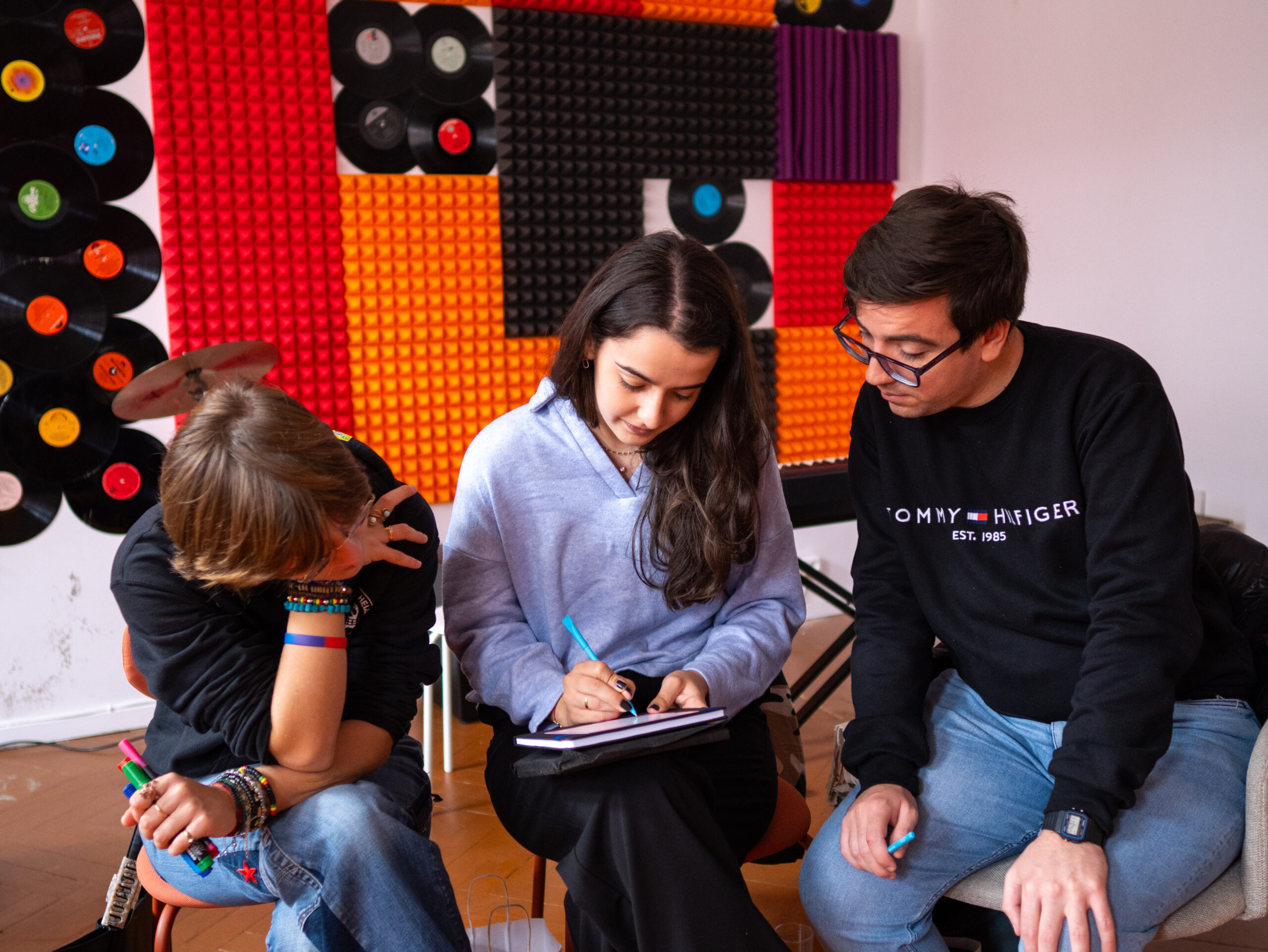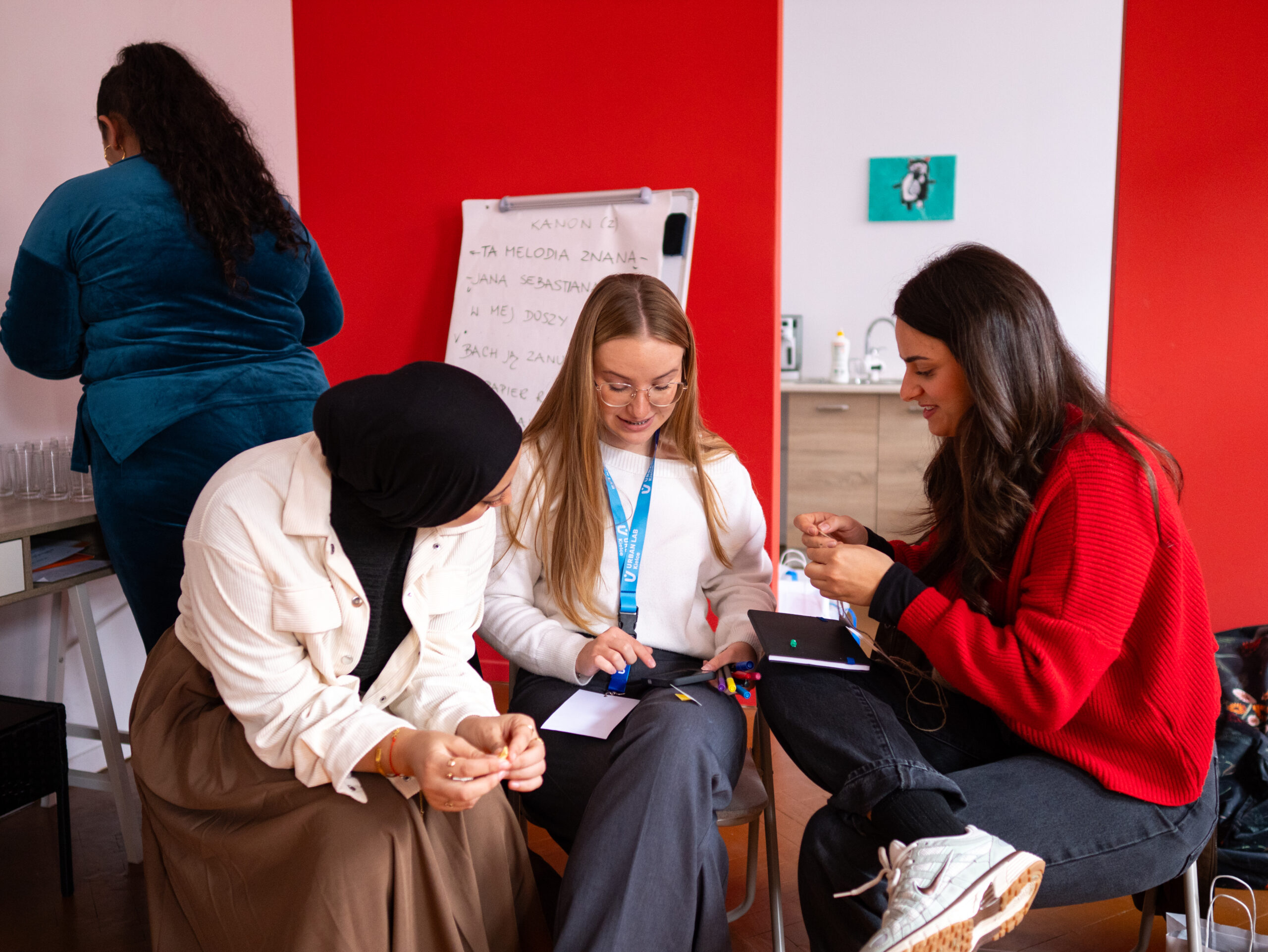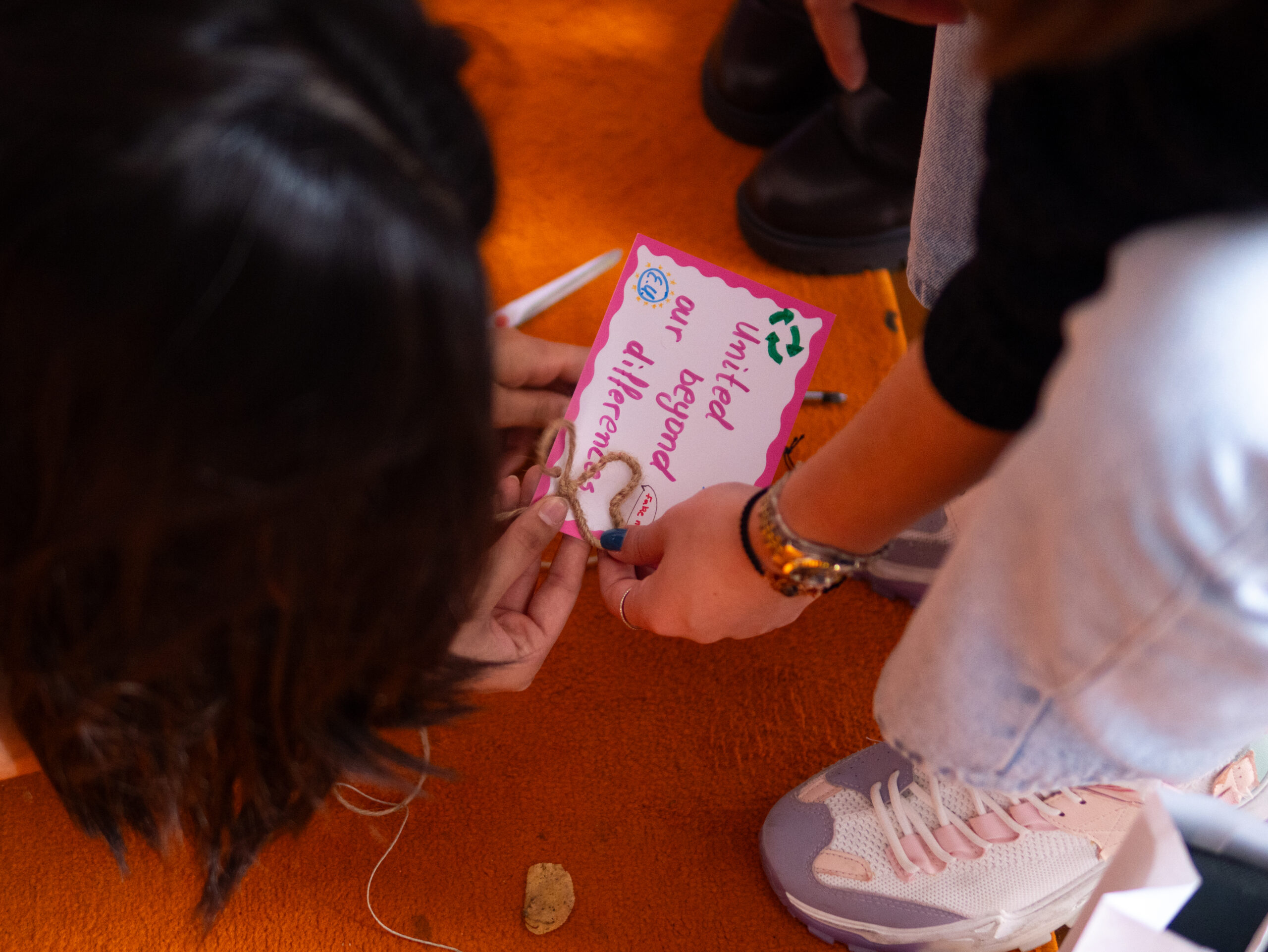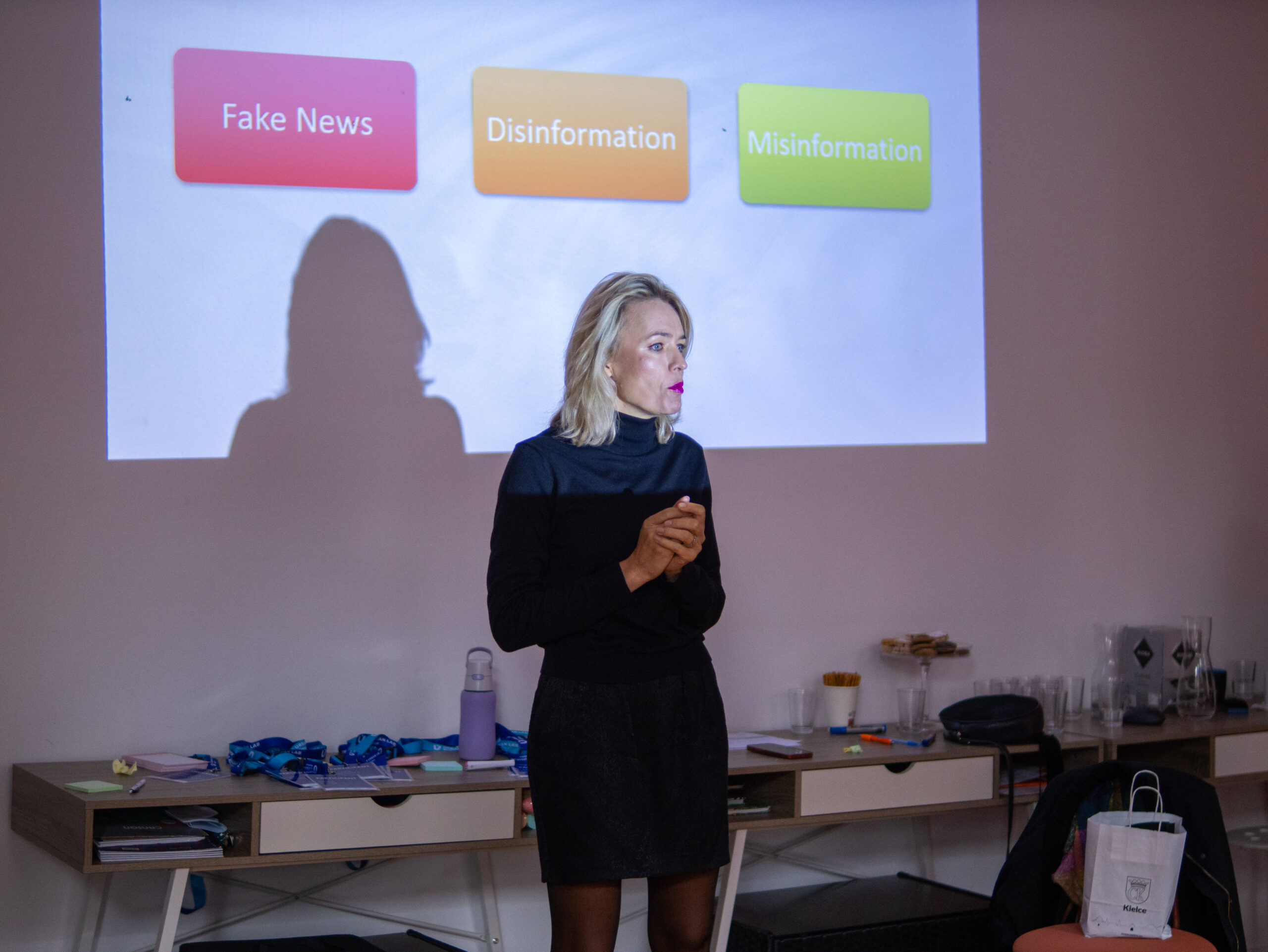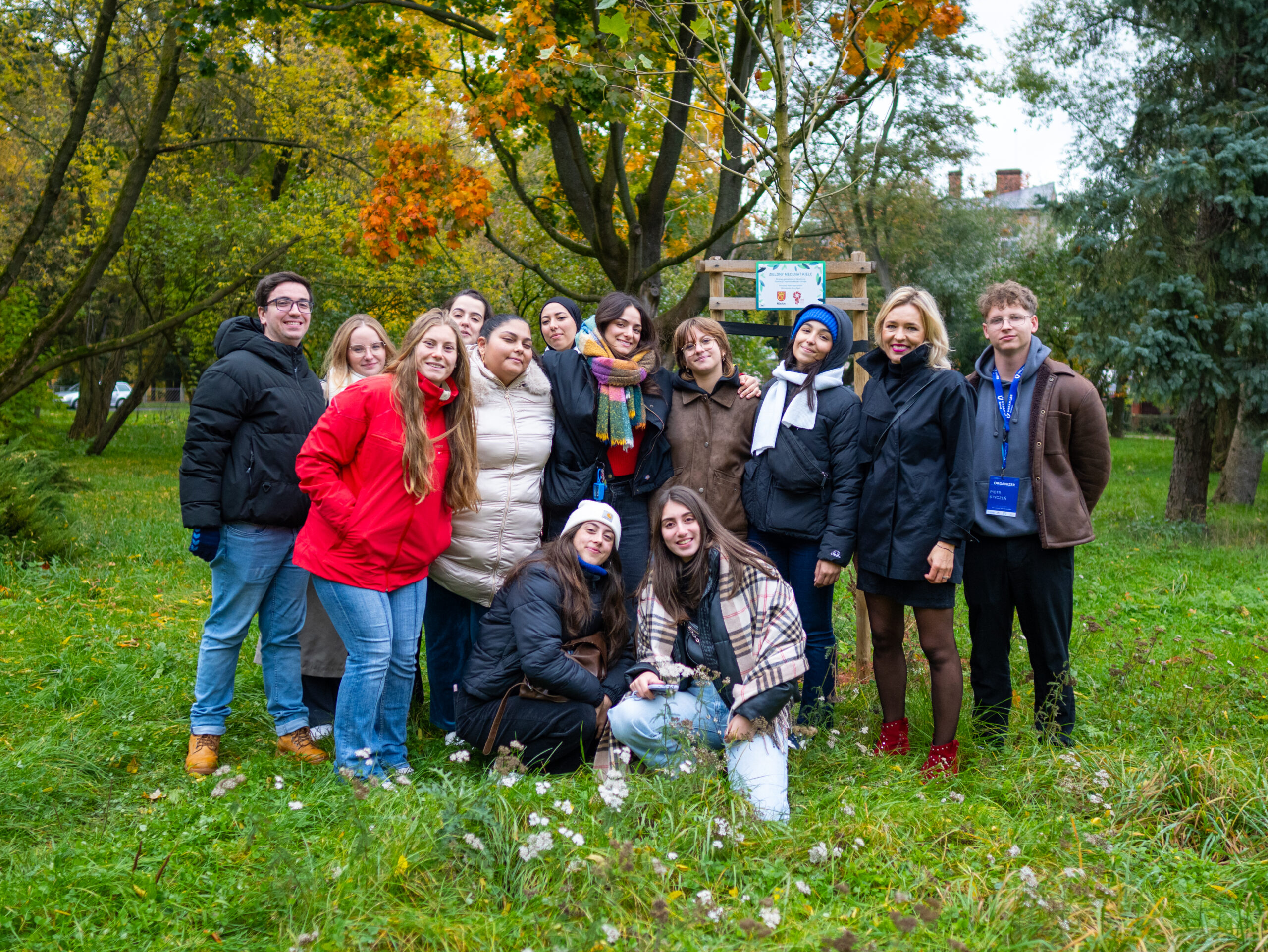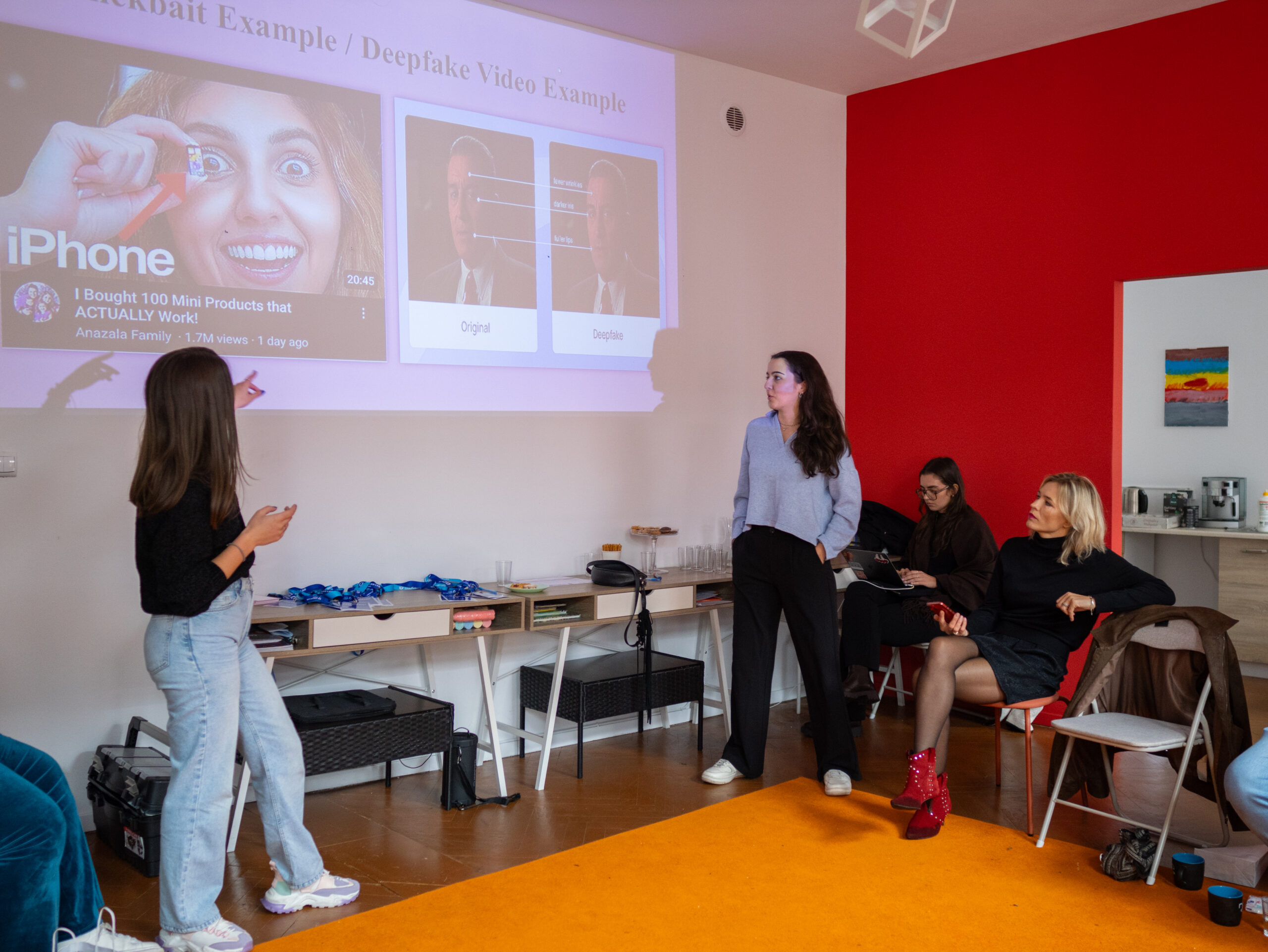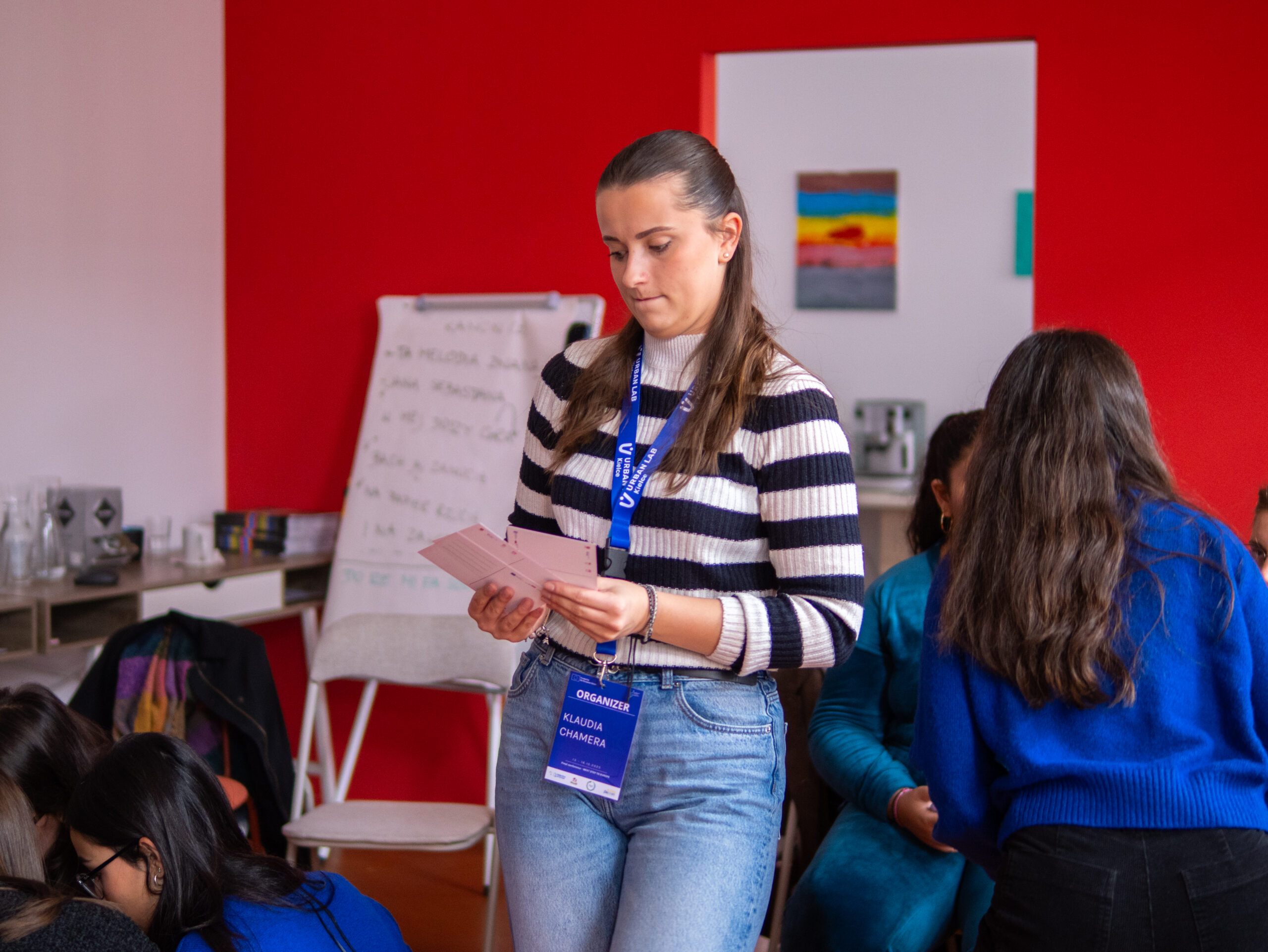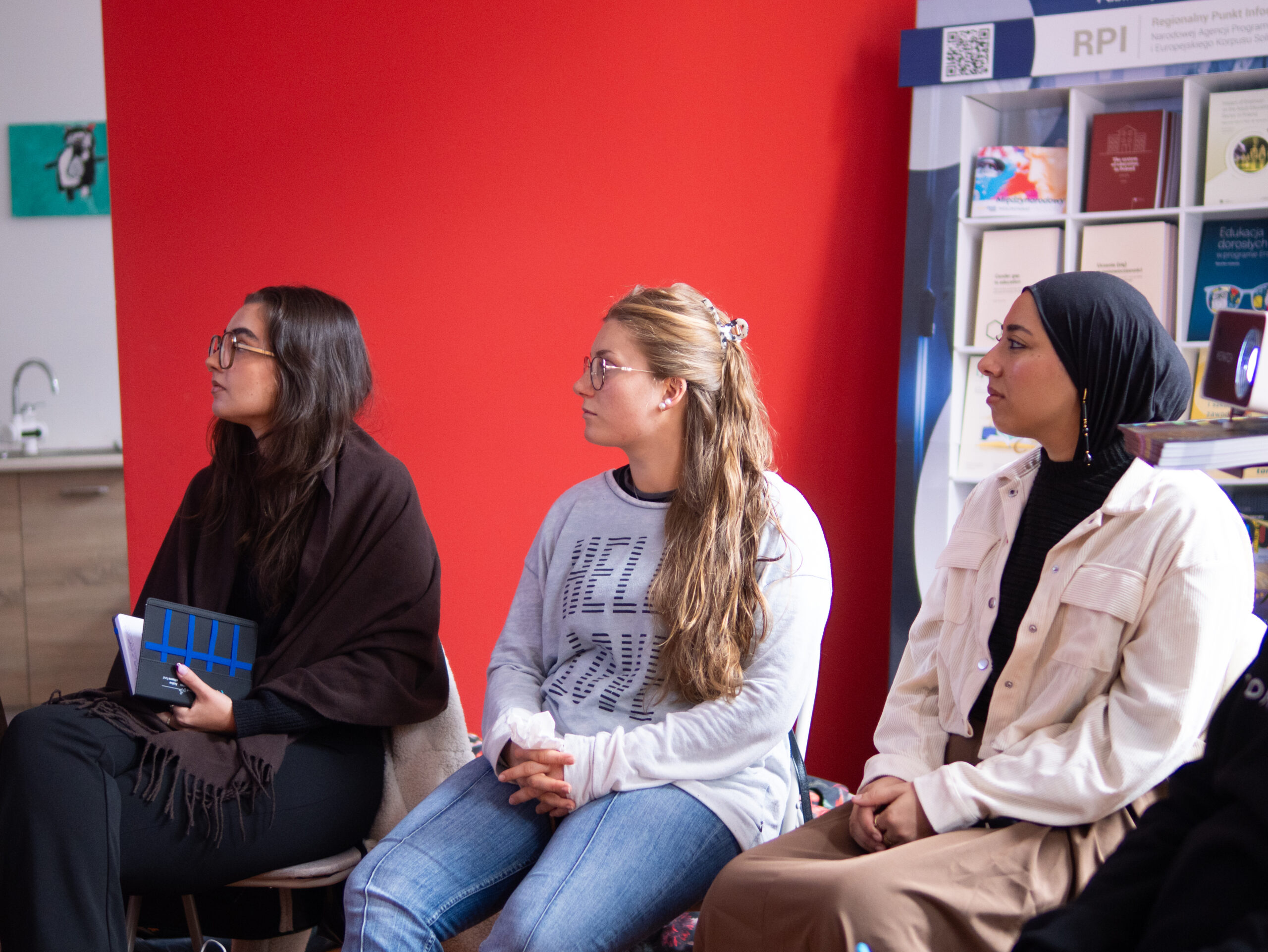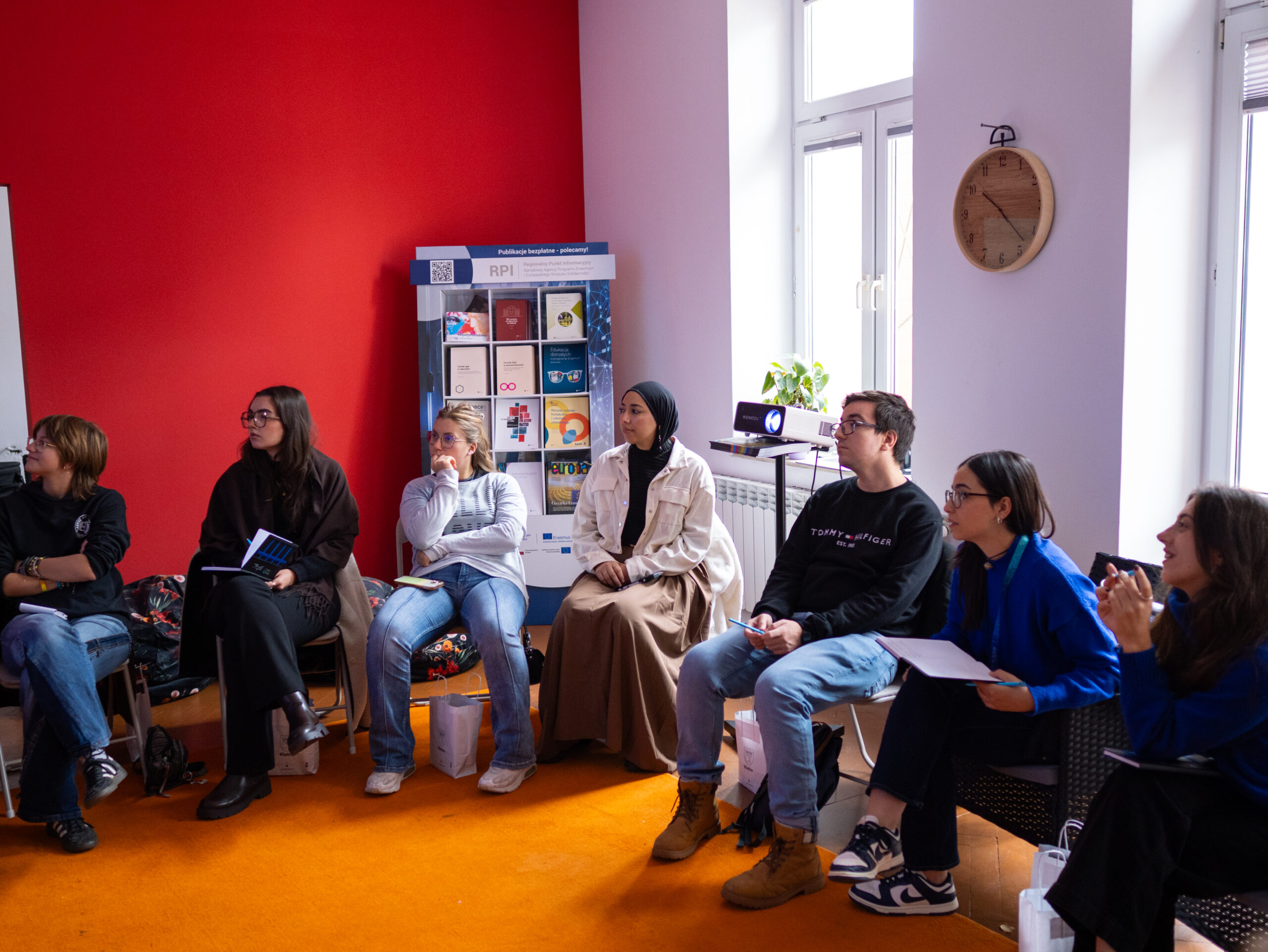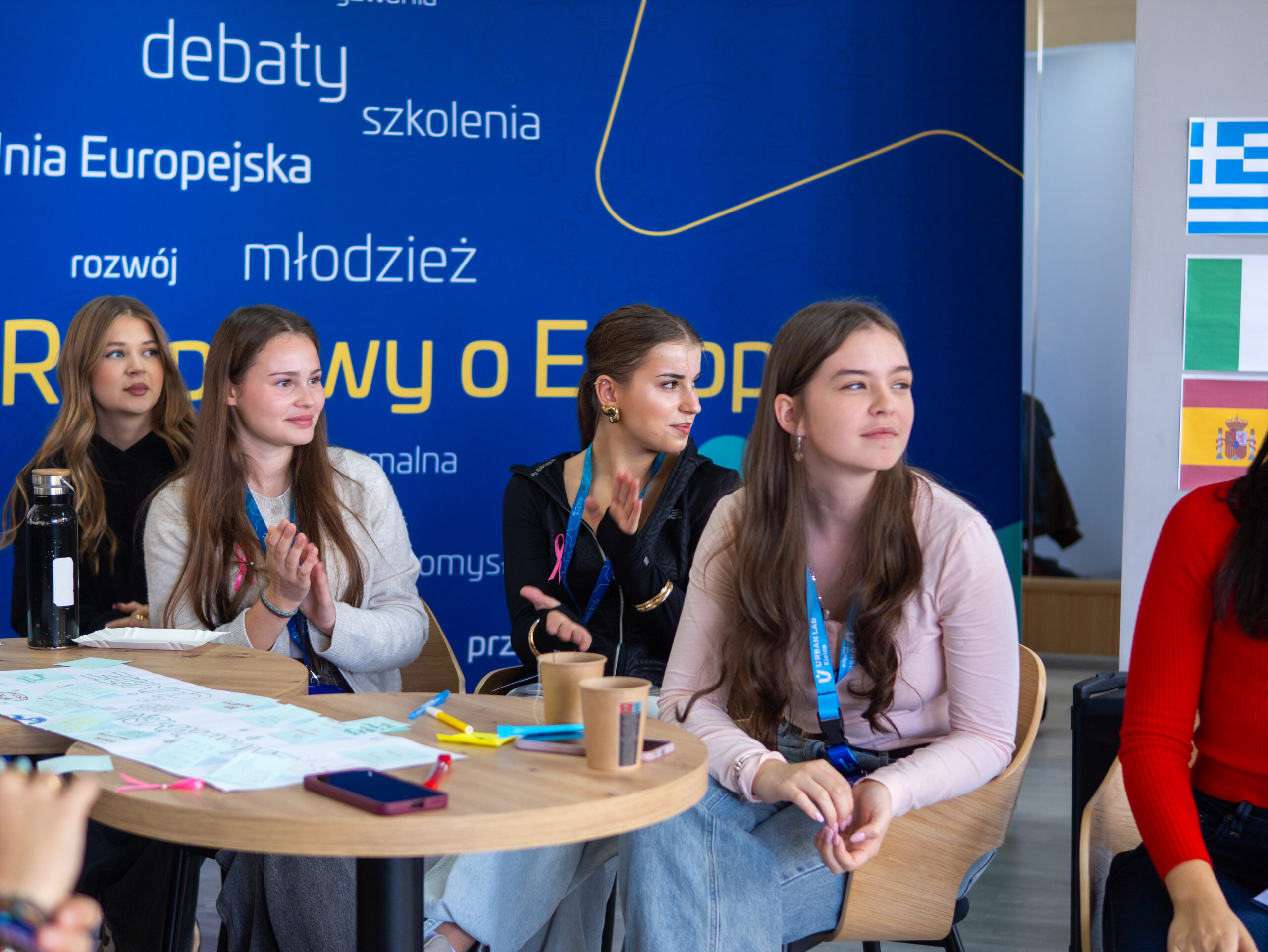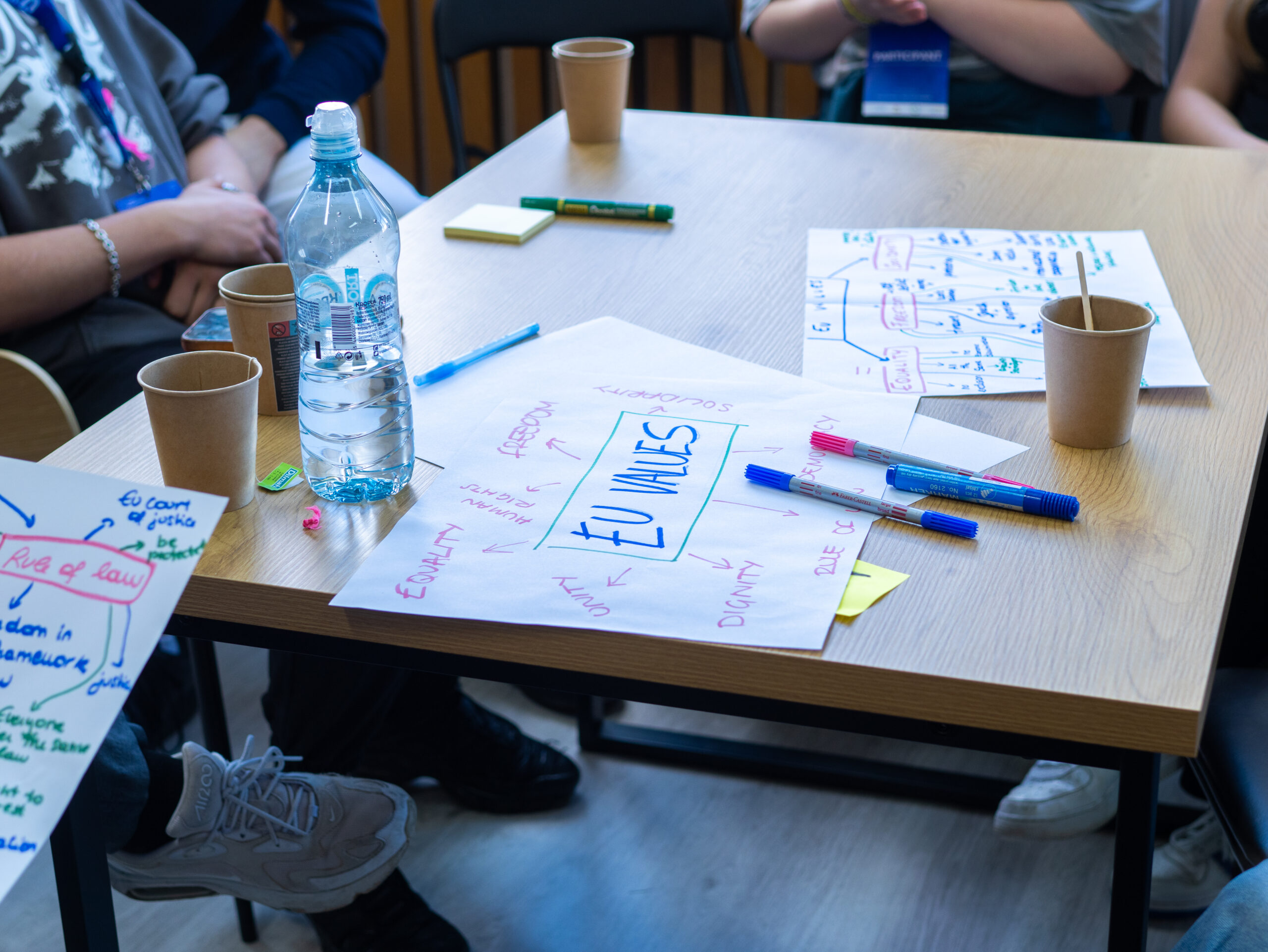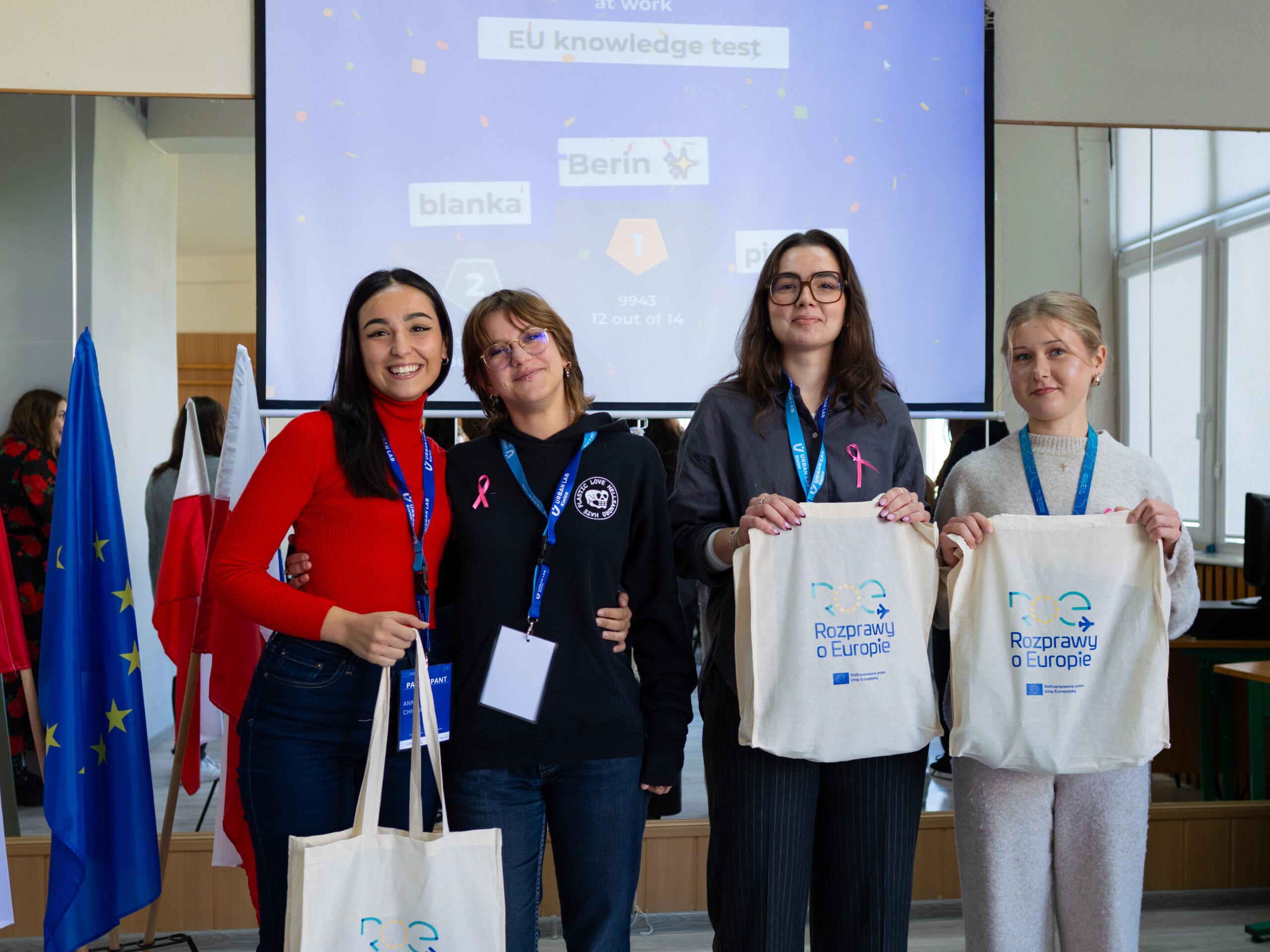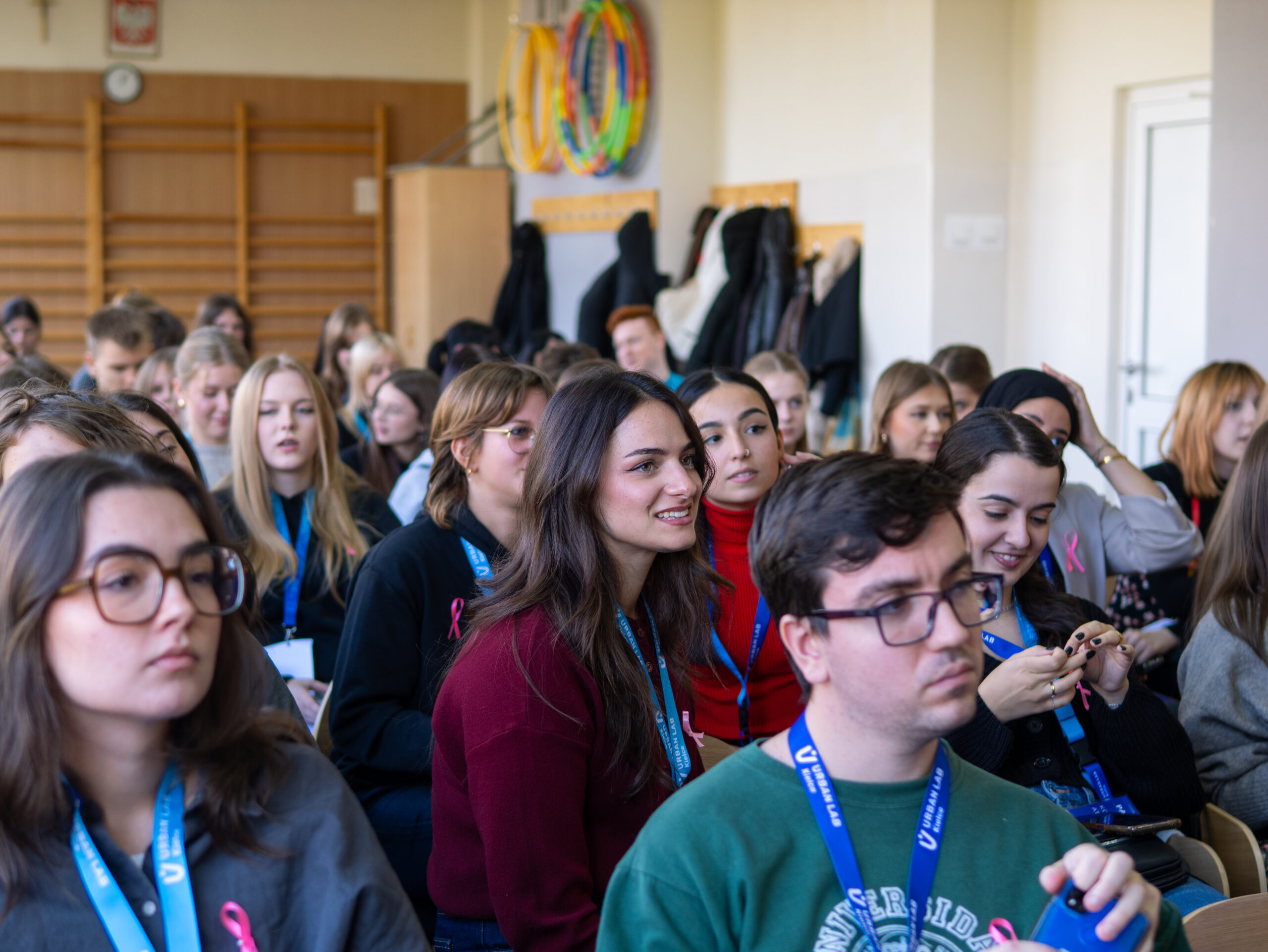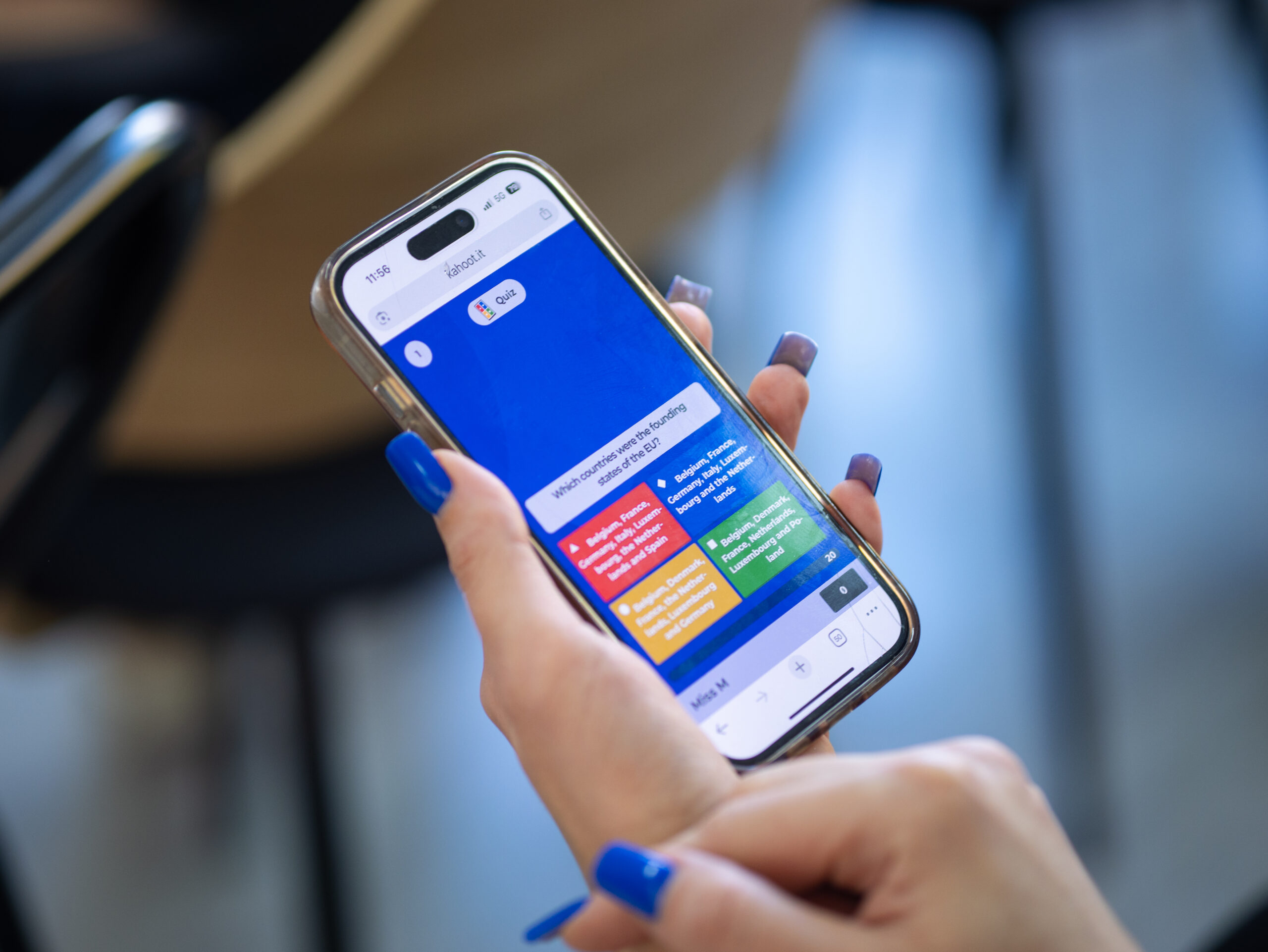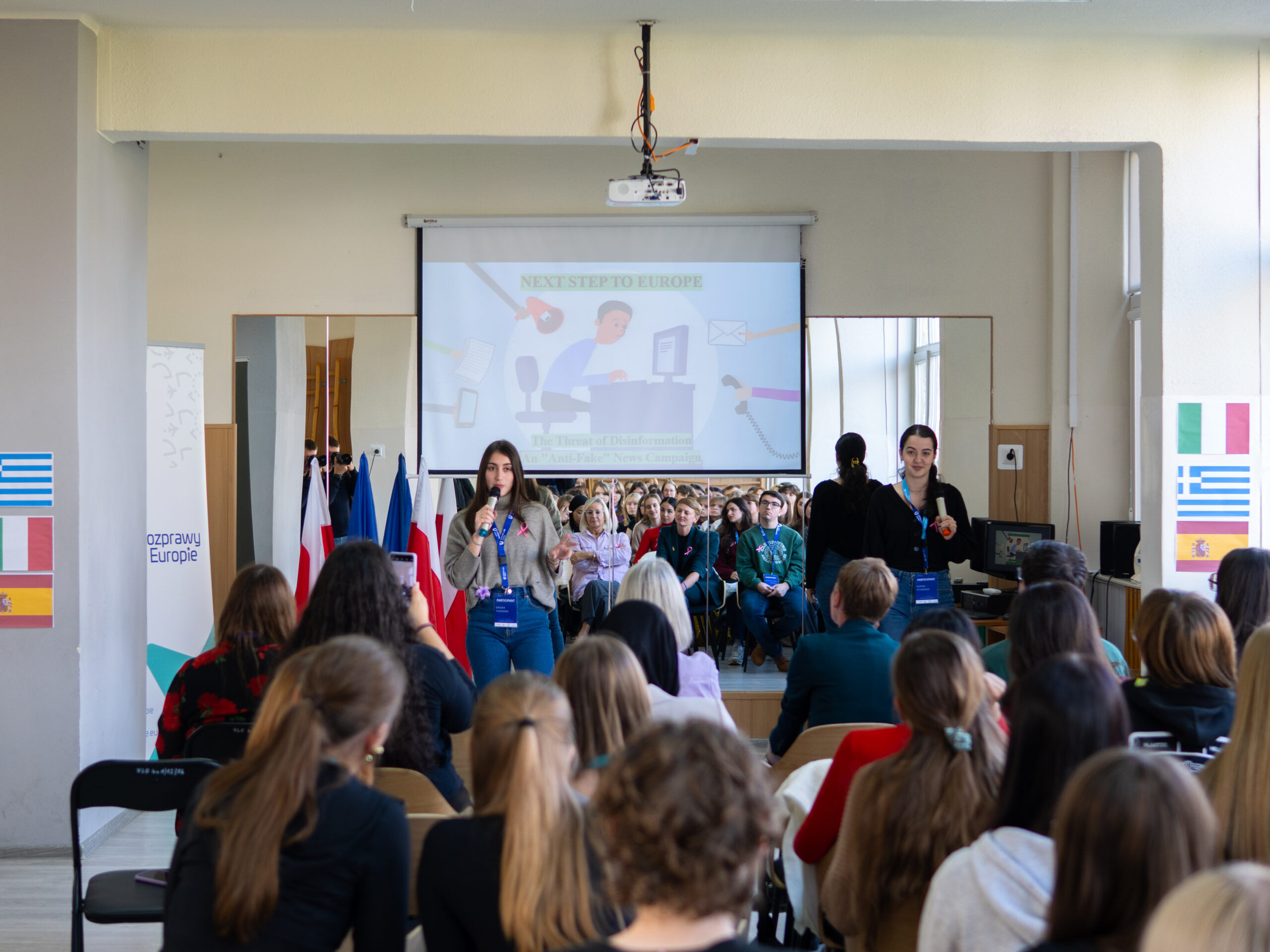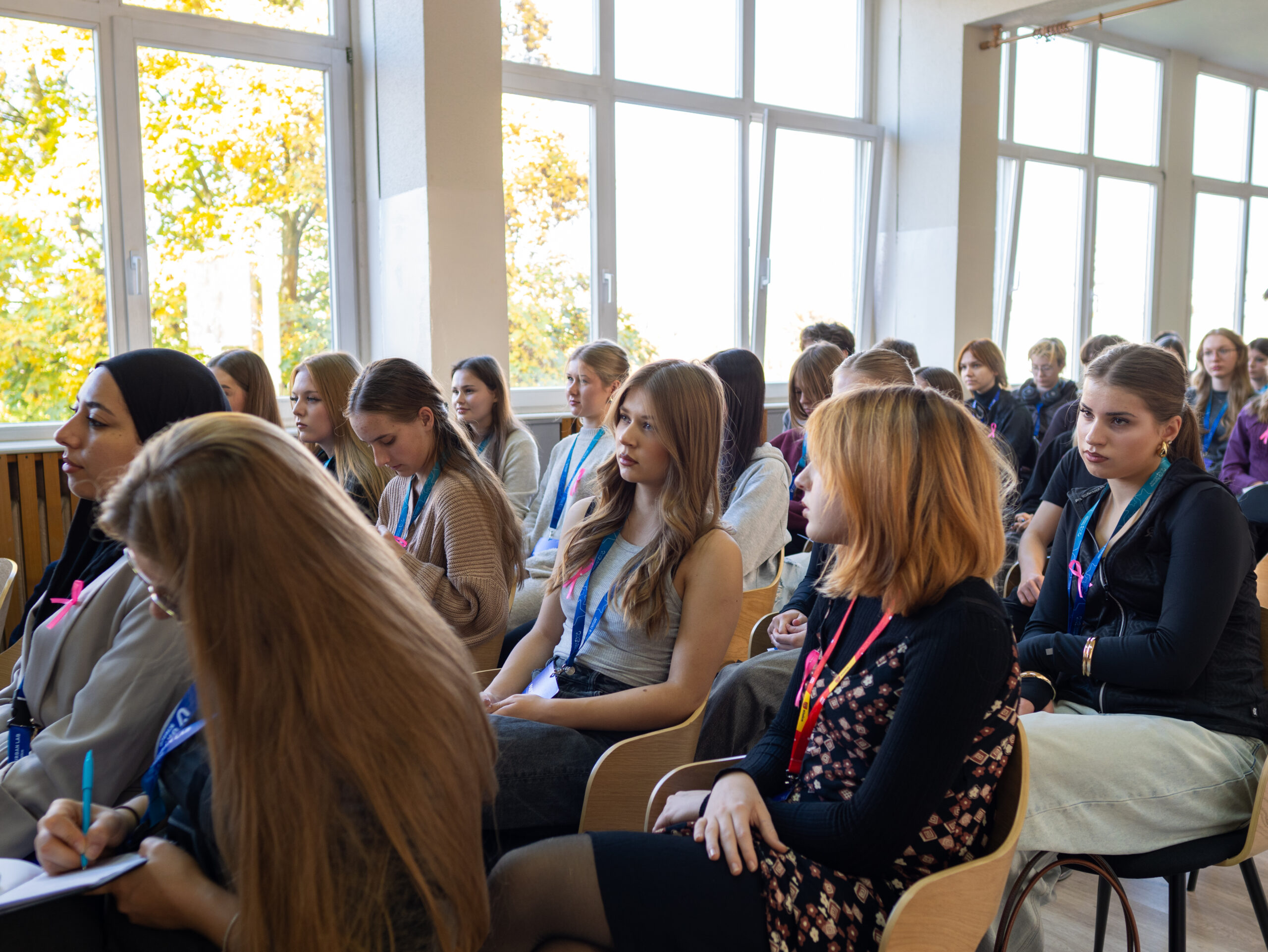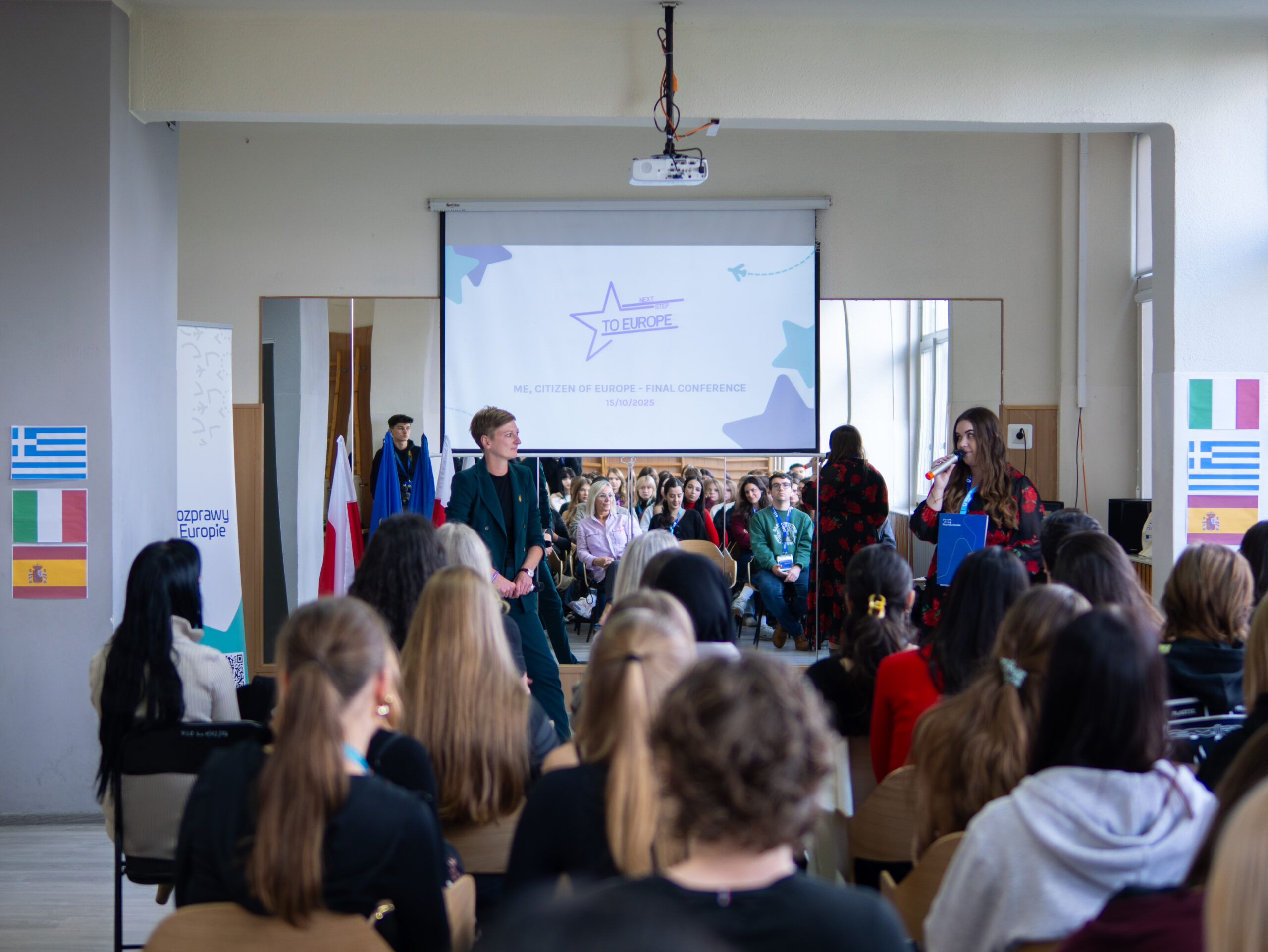Program: CERV – Citizens, Equality, Rights and Values 2021-2027.
Project Leader: Stowarzyszenie Rozprawy o Europie
Duration: 1.05.2024 – 30.10.2025
Partners :
- Italy – MOH
- Greece – Innovating Activities for Innovating People – Kdetyd
- Spain – IDEA Alzira
Project description:
The “Next STEP to Europe” project is a sequel to the “First STEP to Europe” project. Like its first version, the project aims to increase young people’s awareness of participation, democracy, the functioning of the European Union and its future. Other topics covered by the project include climate and environment, and even disinformation.
Project goals:
-Raising youth awareness of the European Union
-Discussion on the future of the EU
-Creating an informed and educated society
-Familiarizing young people with important topics such as democracy, solidarity, climate, environment, disinformation
-Dialogue on the essence of democratic participation
Main activities:
-Eco-Festival – outside event regarding ecology, including discussions, debates, exhibitions, eco-actions
-Meetings in Poland, Spain, Italy and Greece
-UNconference – the unconference format creates space for peer-to-peer learning, collaboration, creativity and increase engagement as attendees provide the topics. This type of conference is entirely participant driven, so young people themselves will choose what they want to talk about. Discussions, working in groups, presentations, open space.
-Study visits
-Campaigns
Who among you remembers the “First STEP to Europe” project that we implemented in 2022 and 2023? Some of you probably started your adventure with us with this very project!
We have great news – we are officially announcing that the continuation of this project i.e. “Next STEP to Europe” has received funding from the EU program CERV – Citizens, Equality, Rights and Values 2021-2027.
We will implement the project in excellent partnership with our friendly organizations from Italy – MOH, Greece – Innovating Activities for Innovating People – Kdetyd, and Spain – IDEA Alzira. We officially start with the project from tomorrow and as part of the project we have ahead of us meetings in Poland, Spain, Italy and Greece during which we will hold competitions, festivals, anti-conferences, workshops, campaigns, study visits, as well as a concluding conference “I, a citizen of Europe”.
The project aims to raise awareness among young people on topics such as democratic participation, the future of the European Union, solidarity, climate and the environment, and countering misinformation.

1. Event in Poland
From February 24th to 28th, Olga and Angela took part in the second of a series of international meetings within the framework of the “NEXT Step to Europe” project.
This time, the meeting took place in Alzira, in the region of Valencia. In line with the project’s goals, the main aim of the gathering was to foster dialogue about the European Union and its influence on our daily lives. With this in mind, the organizers planned the stay in Spain to combine educational workshops with fun and engaging activities.
The first day began with a warm welcome from the local authorities. Afterwards, together with participants from Italy, Greece, and Spain, we discussed the organizations we represent and shared our expectations for the project. We also presented the European values that are most important to us and tested our knowledge in a Kahoot quiz.
Later, it was time for lunch – but not an ordinary one. The organizers took us to a culinary school in Alzira, a place designed for people who haven’t yet chosen their career path or field of study. Under the guidance of professional chefs, students learn both cooking and customer service skills. We believe this is a fantastic initiative for those still seeking their direction in life, and our time at the school was truly a unique experience.
Next, we went on a guided hike through the surrounding mountains. We visited sites dating back up to eight centuries and learned about the rich history of the region.
The following day was very intense. Early in the morning, we met to prepare for three Oxford-style debates on topics related to the European Union. After preparing, it was time to perform. We went to a local high school to debate important EU-related issues alongside students. We were truly impressed by how well-prepared and articulate the students were in expressing their views on such significant topics.
After the debates, we reflected on what had taken place — which ideas we liked and which ones could be improved in the future. The final activity of the day was a workshop about the EU institutions and their roles. The organizers prepared an engaging game called the “institution puzzle,” where we had to match each institution to its function and policy sector.
The last day of the meeting was entirely dedicated to a trip to Valencia. We toured the city center and visited its historic landmarks. The highlight of the trip was a visit to the Valencian Parliament, where we observed how local politicians conduct their sessions and learned about the issues they focus on.
Once again, lunch was a pleasant surprise. We visited La Albufera, the birthplace of Paella Valenciana, and as you might guess, we had the chance to taste this famous dish—on a boat! A short boat ride across the local lakes gave us a glimpse of rice cultivation and helped us understand the significance of the region. We also discussed the recent floods in Spain and saw their effects firsthand.
Afterwards, we headed to the Ciudad de las Artes y las Ciencias—the modern part of the city devoted to art and science. We were deeply impressed by what we saw.
We would like to express our heartfelt thanks for the invitation. The meeting in Alzira will remain in our memories for a long time, thanks to the wealth of knowledge shared, excellent organization, and commitment to cultural education.
Between September 23rd and 27th, we hosted participants from Greece, Spain, and Italy in Starachowice as part of the “Next STEP to Europe” project.
During these few amazing days:
–We participated in workshops on European citizenship. After a brief introduction where we had the chance to get to know each other better and share the good things that have recently happened to us, we moved on to discussing values. We chose cards from a set of values that resonated with us the most and then related them to the European context. It was inspiring to see how much we have in common! Together, we pondered what kind of citizen we feel we are. We collected ideas and wrote them down, and later, each of us defined to what extent, in percentage terms, we feel like a citizen of Europe. There were also discussions about the EU Charter of Fundamental Rights and the Universal Declaration of Human Rights. The final task of the workshop was group work, where we worked on a social participation map. Each of us had the opportunity to share our story. We marked the places where our activist lives began, as well as places we feel most nostalgic about and love to revisit in our memories.
–We met with the councilors of the Youth City Council of Starachowice. We learned about how youth participation works in Starachowice. The Youth Council members told us about their activities, projects, and about an incredible place called the Creativity Center “Pałacyk.” This is where their headquarters is located, and the space is tailored to the needs of young people. We had the chance to see it in person, play PlayStation, and even compete in table football!
–We took part in an ANTI-CONFERENCE. We discussed what the European Union offers young people, the values of the EU, and its future. The idea behind the whole event was a unique approach to execution. It was the youth who decided how they wanted to discuss a particular topic and how to present it to the rest. Among the ideas were role-playing scenes, singing, and even storytelling. During the festival at IILO, we also got to learn about the cultures of our guests from Greece, Spain, and Italy. Students prepared tables with traditional snacks, and there were beautifully arranged decorations and costumes!
–We visited the Eco School. The students presented modern classrooms to us and explained what learning in bilingual classes looks like. Together with our guests, we discussed ideas that could be implemented in such a place. We also addressed the issue of insufficient teaching staff in small towns across Europe. The students and school staff shared their ideas on how to impart knowledge to young people in an informal way.
–We met with various organizations in Kielce. We started the day with a visit to the Youth Parliament of the Świętokrzyskie Voivodeship. The councilors prepared workshops on social participation for us. We had the opportunity to network and discuss during a World Café session. At three tables, we discussed different levels of social activity—from the local to the European level. It was an incredible opportunity to exchange views in international teams, see the differences, but also find common features of EU countries. Next, we visited the Center for Non-Governmental Organizations. We learned how this place operates, and thanks to the hospitality of the staff, we had the chance to explore the entire building. Our last stop in Kielce was the newly opened office of the Creativity Works Europe Foundation. In a friendly atmosphere, we talked about how NGOs work, and to relax, we even sang a French song!
















2. Contest “Future of Europe”
The Future of the European Union Through the Eyes of Young People
The task of the competition is to create a project in the form of a poster, photo, or short video reflecting the future of the European Union as seen through the eyes of young people.
- Poster: May be created using any artistic technique (e.g., paint, markers, crayons, pastels, modeling clay, collage, digital graphics, etc.). The minimum size is A4.
- Photo: Can be taken with any device and in any format.
- Video: Must be recorded with any device and must not exceed 30 seconds in length.
Submissions, along with all required documents (attachments), should be sent via email (scans, file links, or attachments) to kontakt@rozprawy.eu no later than August 31, 2024, by 1:00 PM.
The results of the competition will be announced on our social media platforms and by email.
The aim of the competition is to promote knowledge about the European Union, raise awareness on EU-related topics, and encourage the creation of original projects that highlight the EU and European values.
The first prize is a trip to an international meeting in Spain, taking place from November 18–22, 2024. More details will be provided to the winner!
Participants who place second and third will receive mystery boxes filled with our exclusive goodies!
Winning Entries!
We are thrilled to announce that our “Future of Europe” competition has come to an end! We received a wide range of inspiring submissions from young people who shared their unique visions of the European Union’s future.
A heartfelt thank you to all participants for your creativity and dedication! Your posters, photos, and videos reflected the hopes, ideas, and dreams you associate with the Europe of tomorrow.
Congratulations to all the winners!
Check out the winning entries here:
???? Reflections on Europe NGO (@rozprawyoeuropie) • Photos and videos on Instagram
???? Reflections on Europe NGO (@rozprawyoeuropie) • Photos and videos on Instagram
3. Social campaign
As part of the project, an inspiring campaign titled “EU Catalogue of Opportunities” was launched and carried out by young people actively involved in our initiative.
The idea behind the campaign was simple yet powerful: to display posters with the campaign slogan in places easily accessible to young people—schools, youth centres, and other community spaces where they gather. Our goal was not only to encourage reflection but also to inspire young people to take an active role in shaping the future of Europe.
How did it work?
Our volunteers invited young people to fill in the posters with their thoughts, ideas, and feelings about the European Union. Together, they created inspiring visuals that reflected both their knowledge and personal perspectives on the opportunities offered by the EU.
What did young people gain from this?
Through the campaign, many participants discovered EU programmes such as Erasmus+ and the European Solidarity Corps, which open doors to education, travel, and international cooperation.
A big thank you to everyone who took part and shared their creativity!
Scroll down to see the posters they created.




4. Event in Spain
From February 24th to 28th, Olga and Angela took part in the second of a series of international meetings within the framework of the “NEXT Step to Europe” project.
This time, the meeting took place in Alzira, in the region of Valencia. In line with the project’s goals, the main aim of the gathering was to foster dialogue about the European Union and its influence on our daily lives. With this in mind, the organizers planned the stay in Spain to combine educational workshops with fun and engaging activities.
The first day began with a warm welcome from the local authorities. Afterwards, together with participants from Italy, Greece, and Spain, we discussed the organizations we represent and shared our expectations for the project. We also presented the European values that are most important to us and tested our knowledge in a Kahoot quiz.
Later, it was time for lunch – but not an ordinary one. The organizers took us to a culinary school in Alzira, a place designed for people who haven’t yet chosen their career path or field of study. Under the guidance of professional chefs, students learn both cooking and customer service skills. We believe this is a fantastic initiative for those still seeking their direction in life, and our time at the school was truly a unique experience.
Next, we went on a guided hike through the surrounding mountains. We visited sites dating back up to eight centuries and learned about the rich history of the region.
The following day was very intense. Early in the morning, we met to prepare for three Oxford-style debates on topics related to the European Union. After preparing, it was time to perform. We went to a local high school to debate important EU-related issues alongside students. We were truly impressed by how well-prepared and articulate the students were in expressing their views on such significant topics.
After the debates, we reflected on what had taken place — which ideas we liked and which ones could be improved in the future. The final activity of the day was a workshop about the EU institutions and their roles. The organizers prepared an engaging game called the “institution puzzle,” where we had to match each institution to its function and policy sector.
The last day of the meeting was entirely dedicated to a trip to Valencia. We toured the city center and visited its historic landmarks. The highlight of the trip was a visit to the Valencian Parliament, where we observed how local politicians conduct their sessions and learned about the issues they focus on.
Once again, lunch was a pleasant surprise. We visited La Albufera, the birthplace of Paella Valenciana, and as you might guess, we had the chance to taste this famous dish—on a boat! A short boat ride across the local lakes gave us a glimpse of rice cultivation and helped us understand the significance of the region. We also discussed the recent floods in Spain and saw their effects firsthand.
Afterwards, we headed to the Ciudad de las Artes y las Ciencias—the modern part of the city devoted to art and science. We were deeply impressed by what we saw.
We would like to express our heartfelt thanks for the invitation. The meeting in Alzira will remain in our memories for a long time, thanks to the wealth of knowledge shared, excellent organization, and commitment to cultural education.
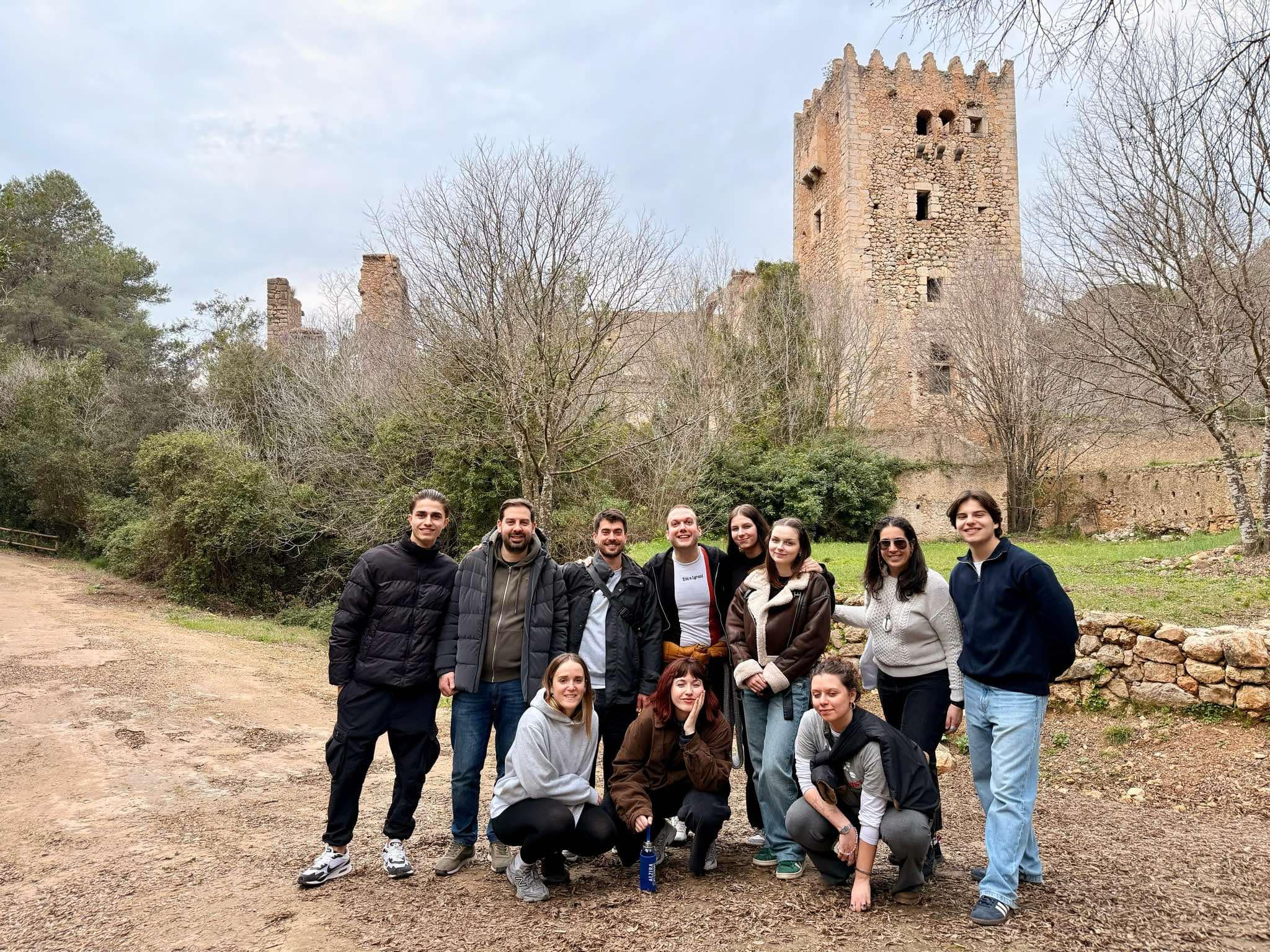
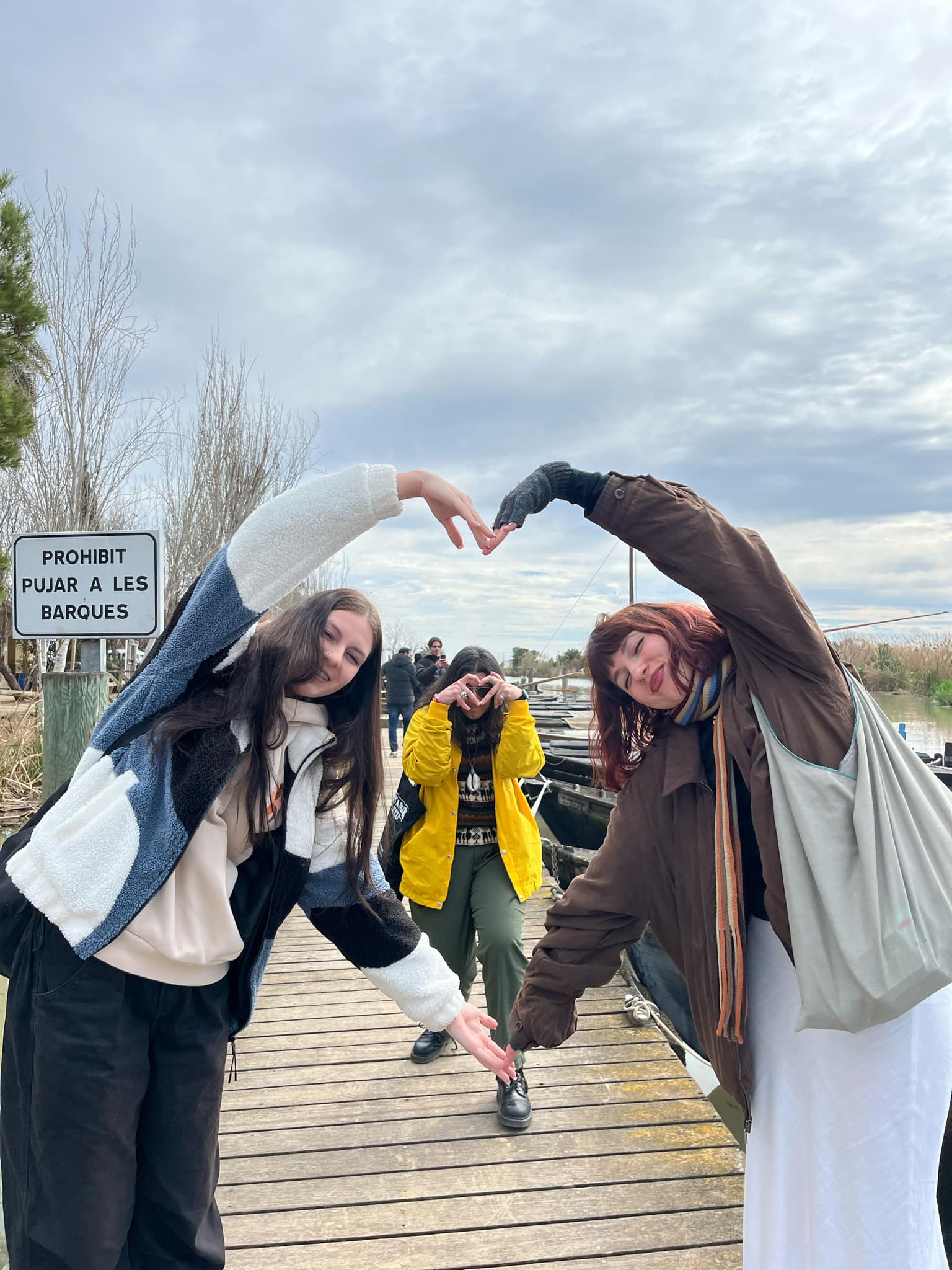
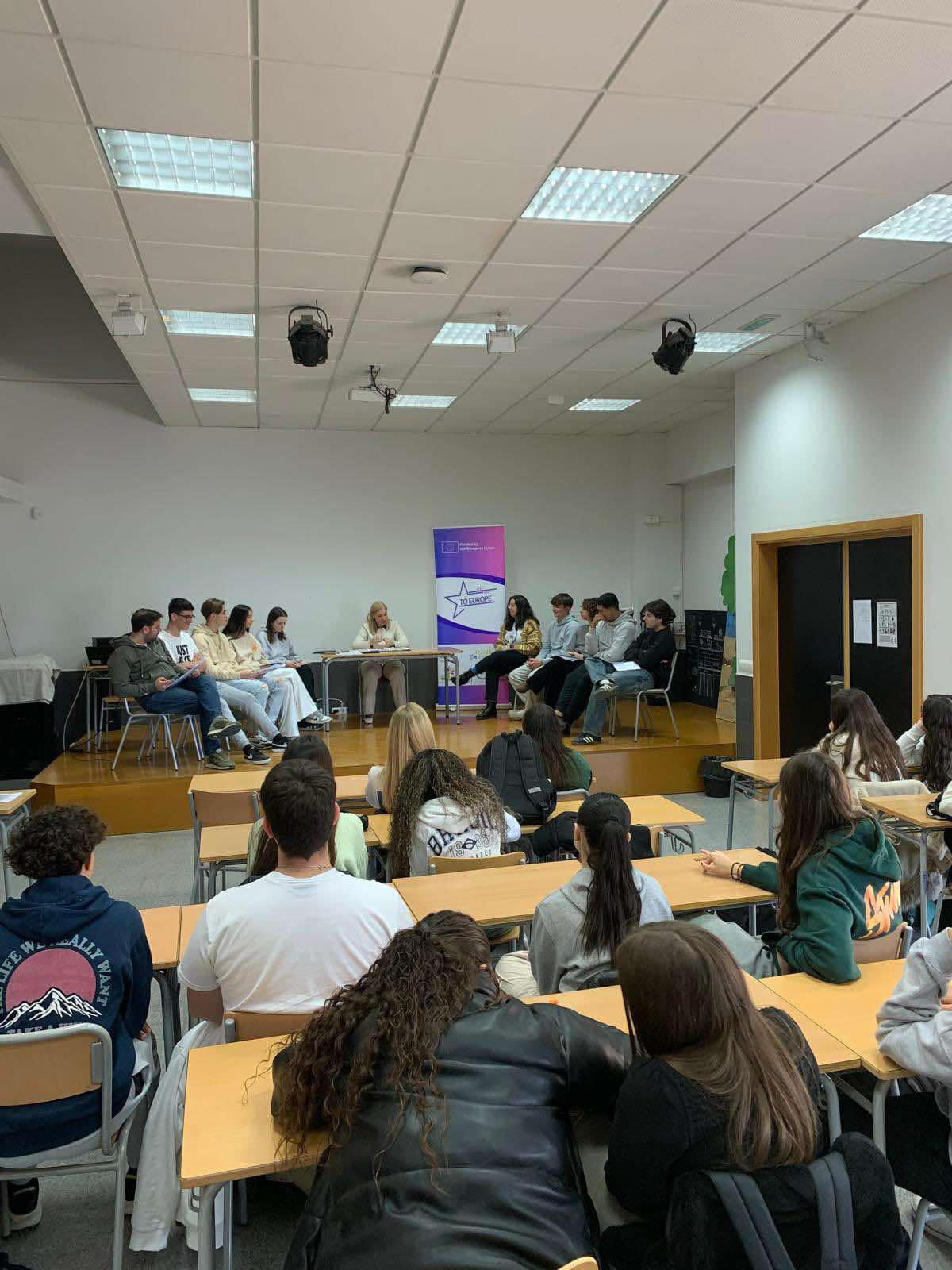
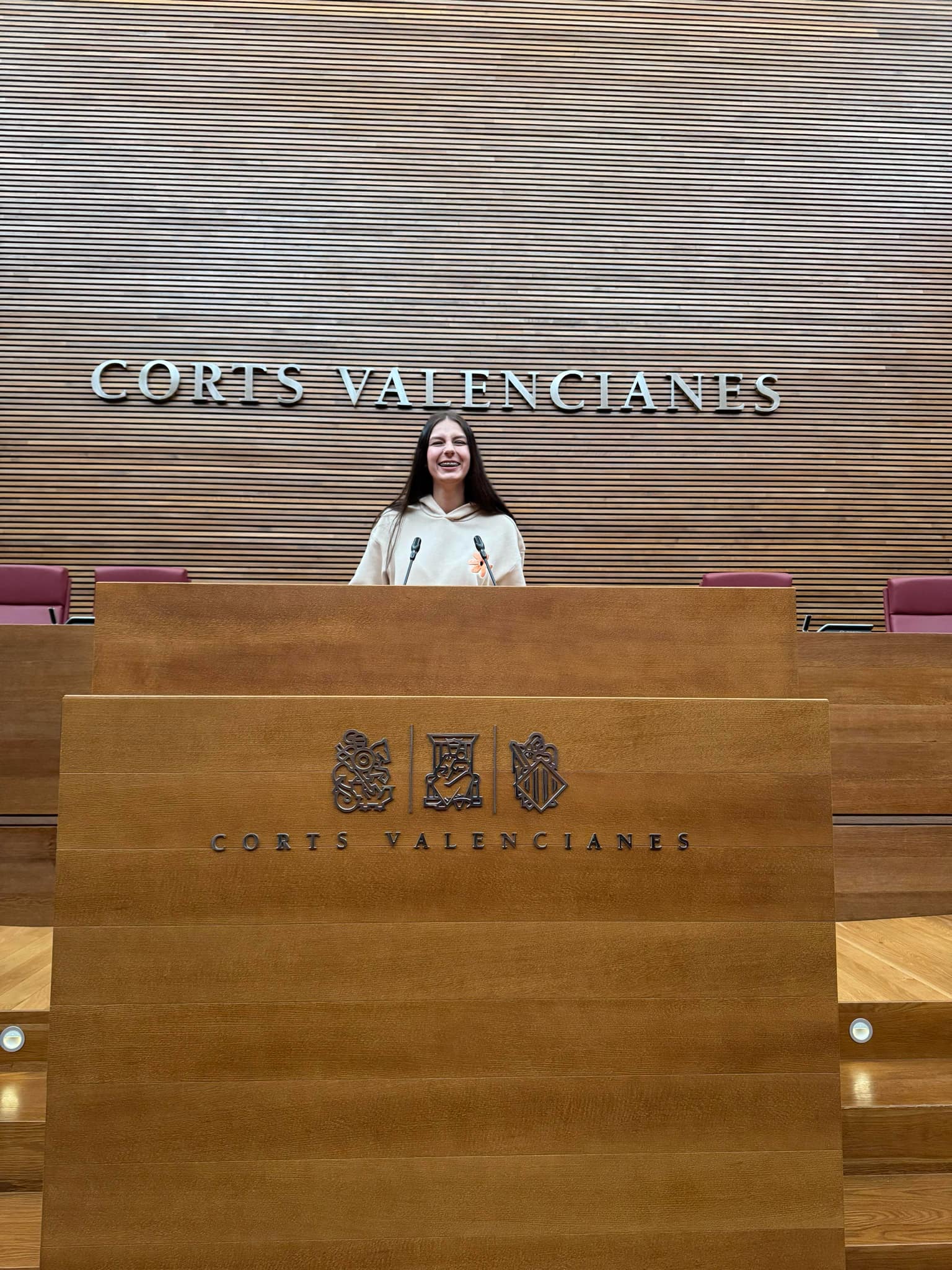
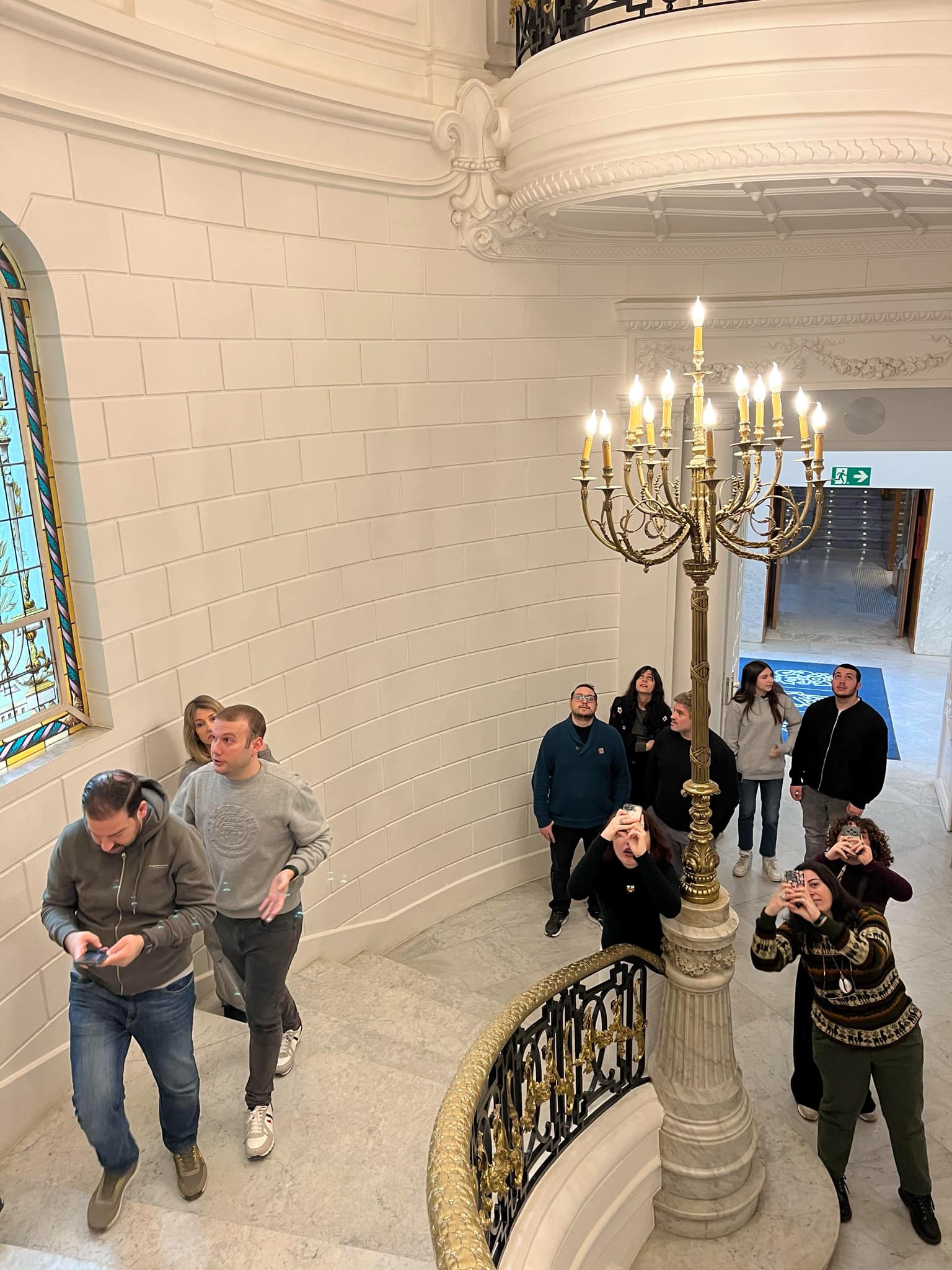

4. Event in Italy
As part of the “Next Step to Europe” project, a study visit to Italy took place from April 7th to 10th, 2025, focusing on sustainability, youth participation, and environmental awareness.
The visit began in Bari, where participants explored Spazio13, a cultural and creative hub located in the Libertà neighbourhood. Formerly a school, Spazio13 has been transformed into a collaborative space supporting innovation, art, and social initiatives. Each participating organisation presented their work with youth, highlighting local environmental activities. Volunteers from Tou.Play guided the group through the space, introducing various resident organisations. In the afternoon, the group met with Emiliano Ragno, a representative of Fridays for Future and the newly established organisation “Giustizia Climatica Ora: Bari.” Discussions focused on how young people can take more conscious action for the planet, followed by a collective brainstorming session to prepare the next day’s Eco-Festival.
The Eco-Festival was held in Conversano and involved students from Liceo San Benedetto. In the morning, students engaged in interactive sessions using Mentimeter to assess their knowledge of environmental issues such as deforestation, fast fashion, and Earth Overshoot Day. This was followed by a World Café activity where students discussed questions related to the impact of technology on the environment, regional effects of climate change, methods to encourage environmental responsibility, and the consequences of fast fashion. Participants from the mobility project facilitated discussions, and student teams presented their conclusions. In the afternoon, a cleanup action was organised with the participation of 91 students! Participants engaged in creative, hands-on workshops where they learned how to give waste materials a second life—by.
The final day included a visit to Alberobello and Polignano a Mare, followed by a beach cleanup in Bari in collaboration with Tou.Play. The group cleaned a 200-meter stretch of coastline near the breakwater, removing over 40 kilograms of debris.
The study visit was an inspiring example of youth-led international cooperation and a shared commitment to sustainability. Participants left Italy more connected, engaged, and motivated to take further action for a greener future.





5. Event in Greece
In 22-26 of September 2025, the city of Drama (Greece) became the meeting point for young people from Poland, Spain, Italy and Greece who gathered for a unique European youth event focused on media literacy, democratic participation, and countering disinformation. The five-day programme combined workshops, intergenerational dialogue, cultural visits, and youth-led initiatives.
The event opened with a kick-off meeting where participants learned about the project’s objectives, got to know each other and reflected on what it means to be an active European citizen. Early workshops introduced key themes such as European citizenship (by Kozoni Sasa) and the challenges of the digital information age through the interactive session “Decoding the Digital World: Identifying Fake News and Plagiarism”.
One of the highlights was the World Café discussion, where participants rotated between four tables, each addressing a crucial aspect of today’s media environment:
- Disinformation and how to recognise it – tools and strategies to verify sources.
- Hate speech online – identifying, reacting to, and preventing toxic narratives.
- Creating credible and reliable information – how young people can become trustworthy messengers.
- The role of social media in times of crisis – challenges of propaganda, examples of good practices.
The format encouraged dialogue, exchange of perspectives, and the creation of new ideas for civic engagement.
On the third day, the Drama Music School hosted a workshop “Become an Active Citizen: Fighting Fake News in Europe”, where theatre and music were used as tools for learning about misinformation. Young people also tested their EU knowledge with a Kahoot quiz and met with journalist Kiki Cheristanidou, who shared insights on the importance of free press, ethical journalism and searching for truth in times of manipulation.
Participants visited the Kavala Counseling Center for the workshop “Fake News and Mental Resilience: How to Protect Ourselves”. Trainer Xrysa Tseleli guided young people through discussions on how disinformation and online negativity affect mental health, offering strategies for resilience, self-care and critical thinking.
The event was not only about learning but also about networking and building partnerships. Meetings were held with the Youth Team of Kavala Municipality, Europe Direct Centers in Komotini and Drama, cultural associations such as The Thracian Hearth, vocational schools, and local social enterprises. These exchanges allowed participants to connect their learning with real civic initiatives and explore ways to collaborate across borders.
The final day focused on evaluation and forward planning. Young people designed local awareness campaigns against disinformation and hate speech to be implemented in Drama. Ideas included online campaigns, school poster competitions, and public events. This ensured that the knowledge gained would be translated into tangible actions reaching a wider community.
Disinformation, hate speech and propaganda are among the greatest challenges facing democracy today. This international event showed that young people are ready to take responsibility, learn the skills to recognise manipulation, and act as multipliers in their communities. By connecting education, culture, and civic engagement, the Drama meeting gave participants the chance to experience democracy in action and to become advocates of truth and dialogue in Europe
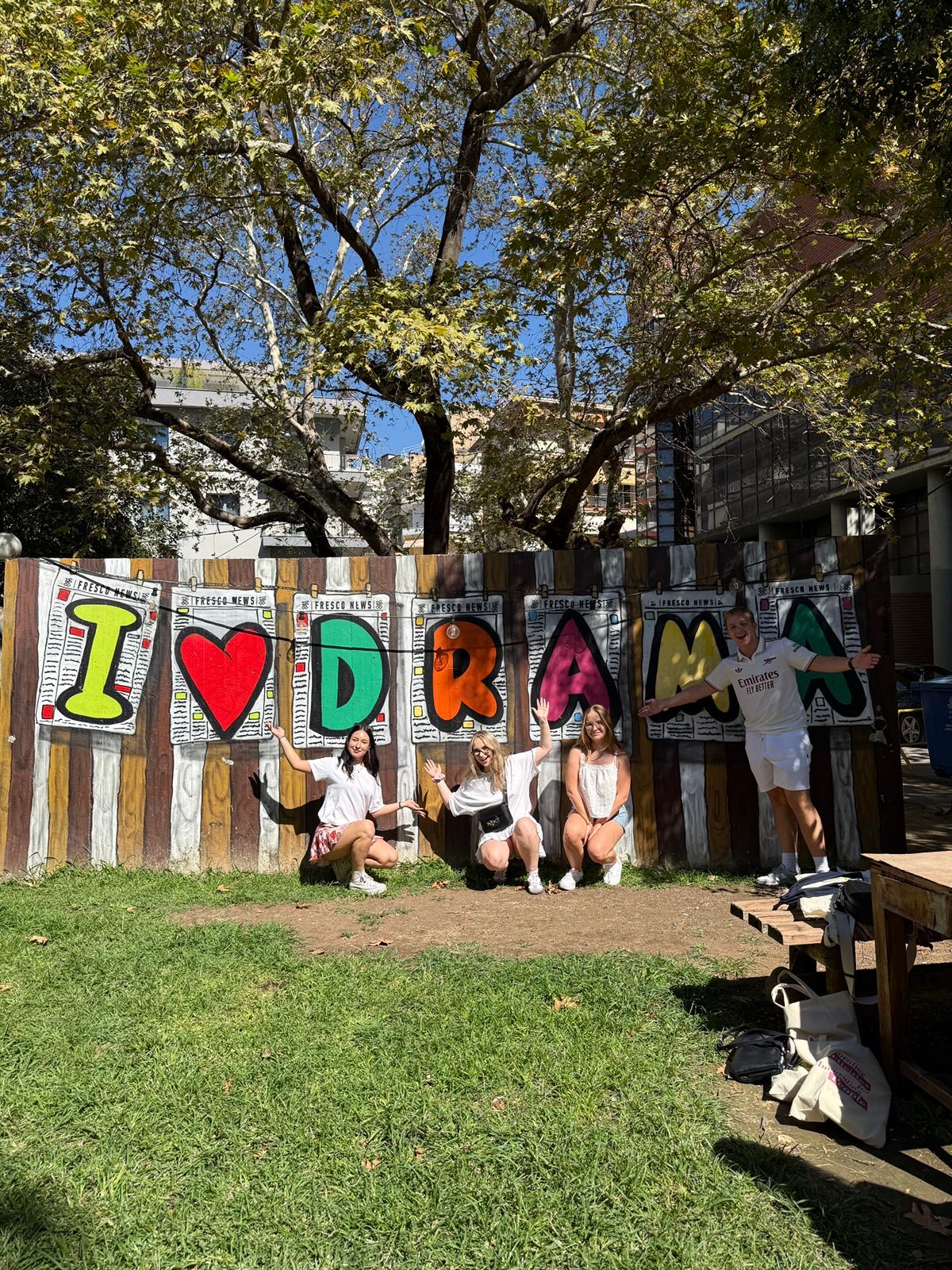
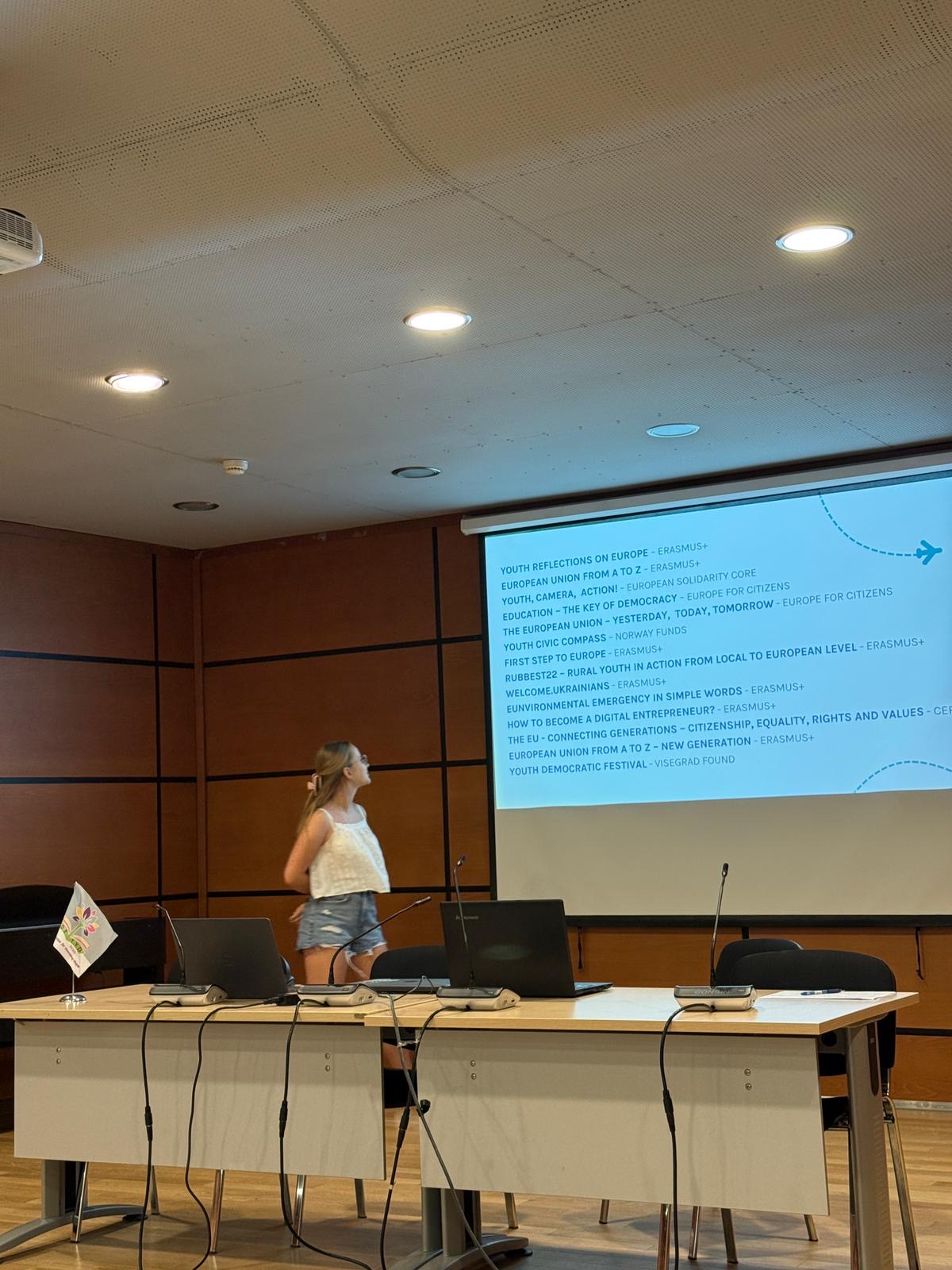
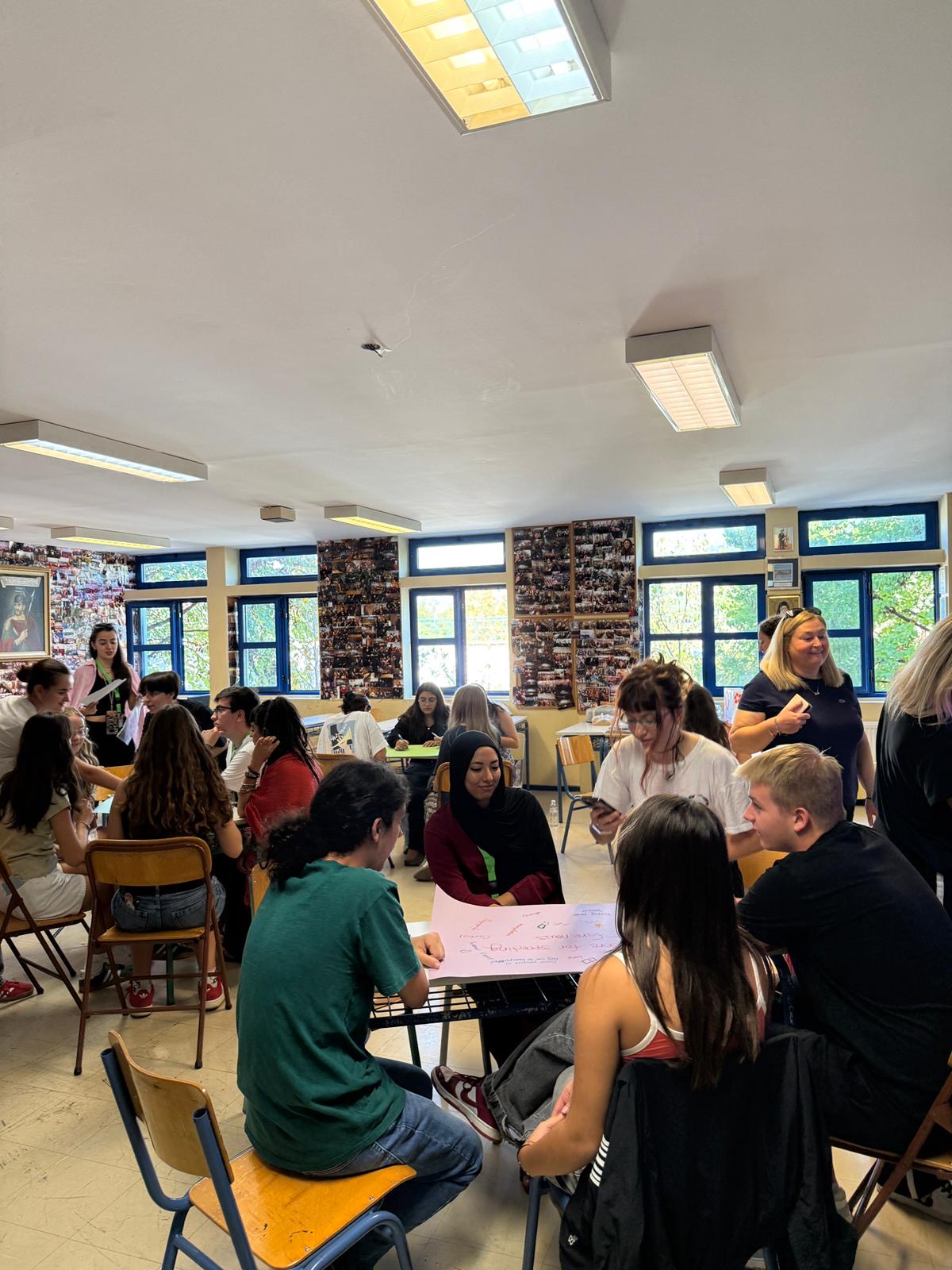
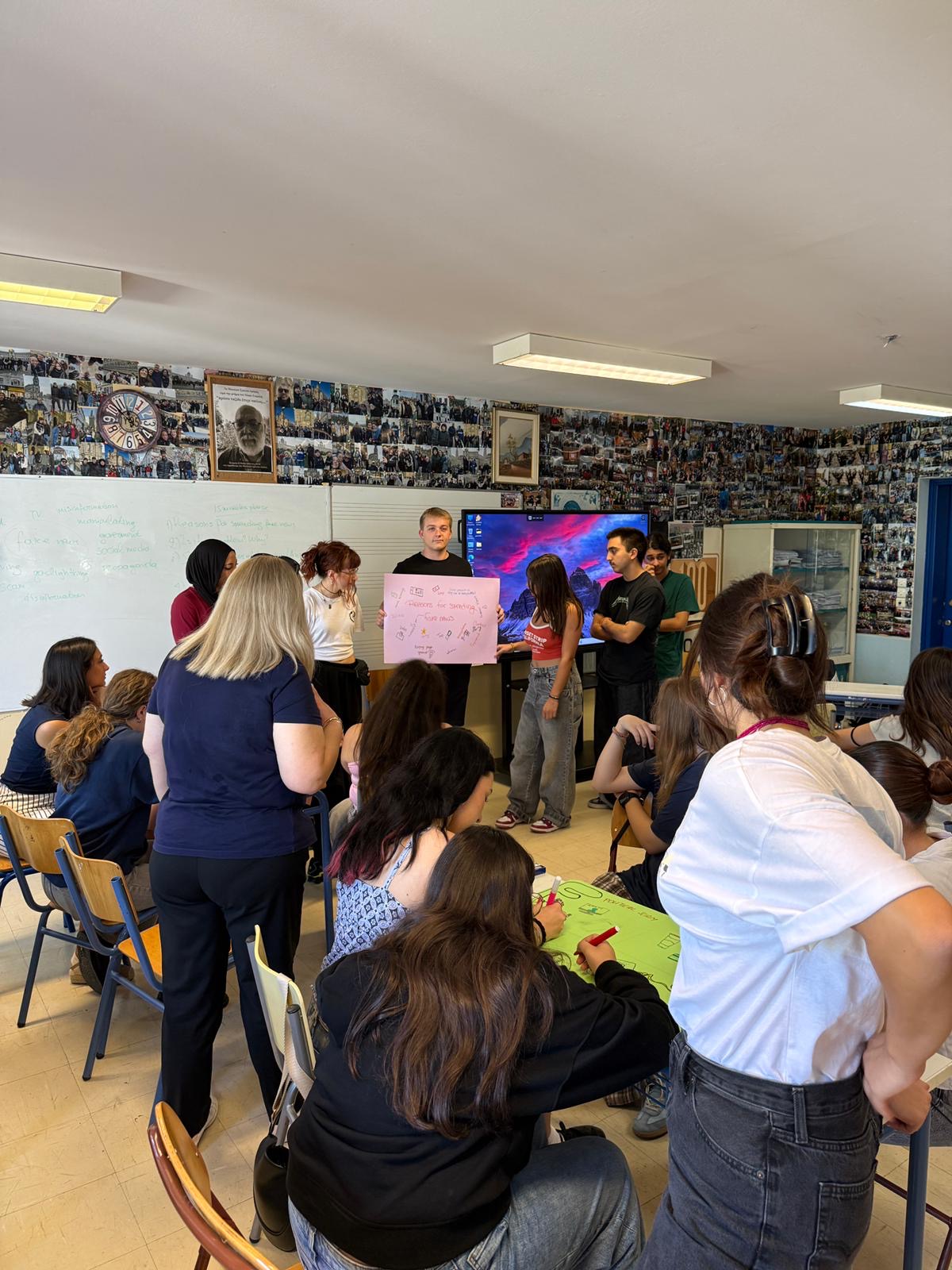
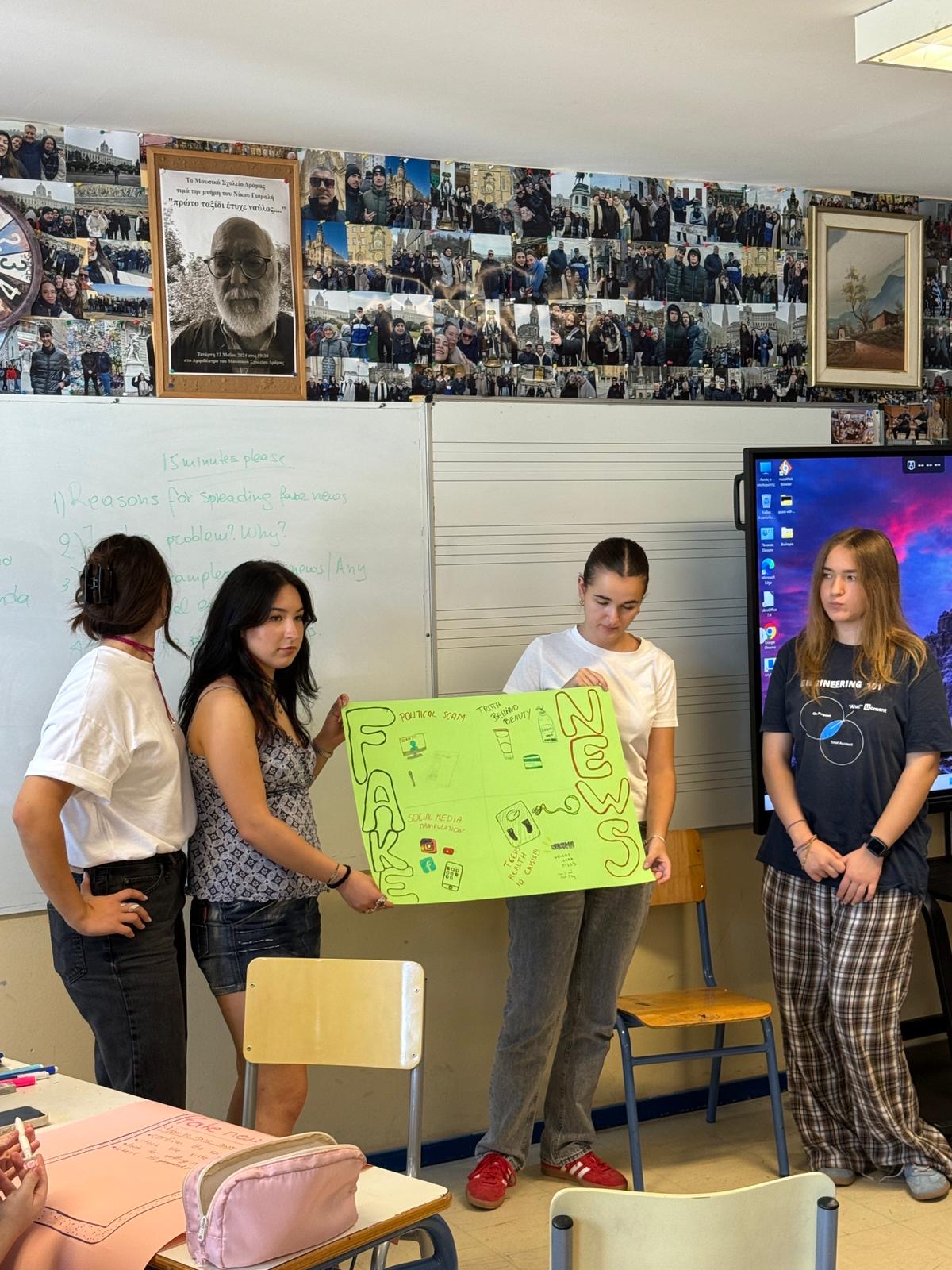
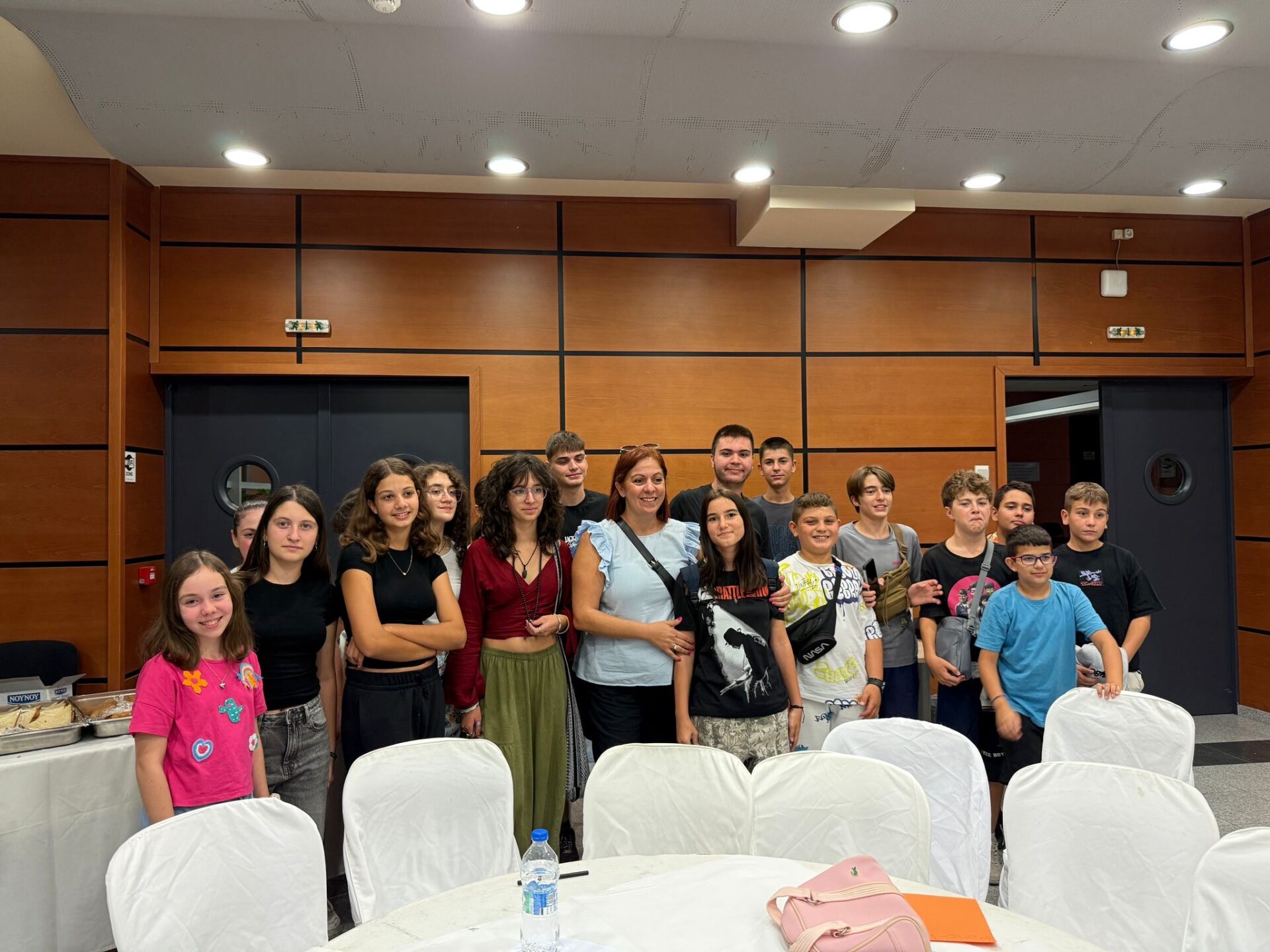
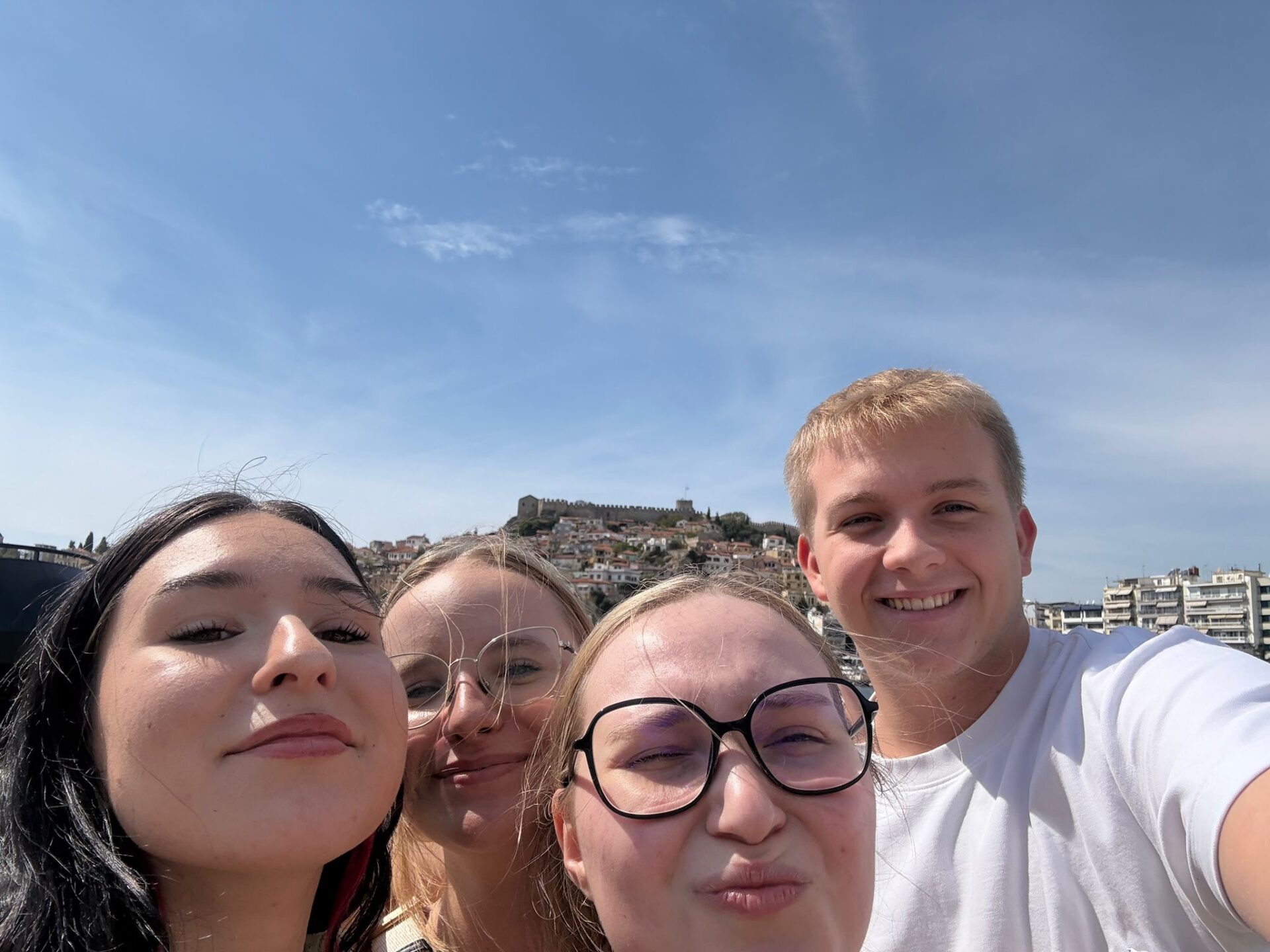
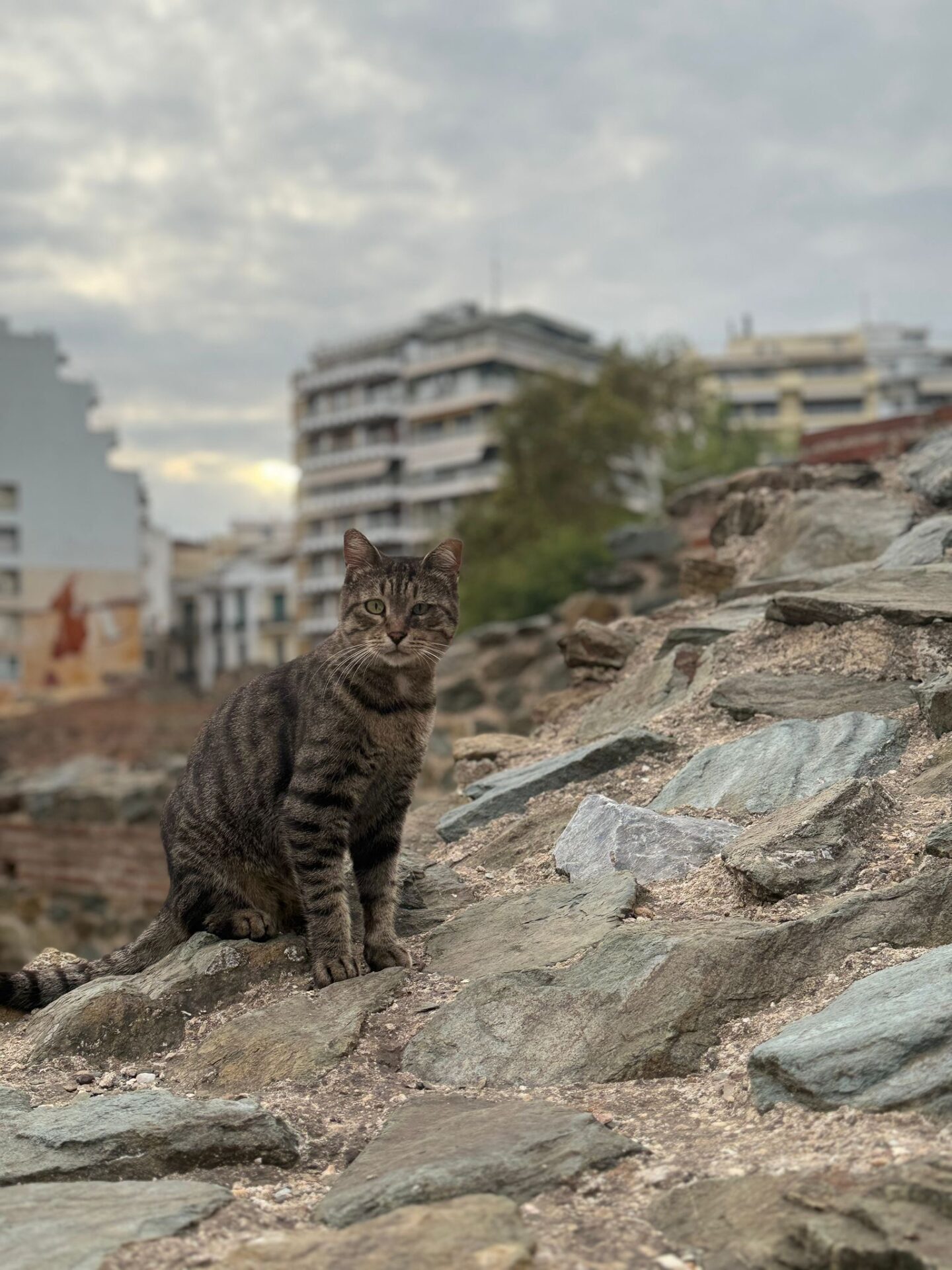
6. Final conference in Poland “Me, Citizen of Europe”
From October 13–16, we met for the final time as part of our project “NEXT Step to Europe.”
It was a truly special moment – filled with reflection, memories, and inspiration. Together, we summed up 18 months of collaboration, sharing the experiences, knowledge, and energy we had built throughout this journey.
The first day was devoted to reviewing the project and everything we had accomplished so far. Participants, who knew the initiative inside out, shared their insights and the lessons they had drawn from the past months. This exchange helped us prepare for the upcoming conference – gathering all our ideas and experiences into our speeches. With the guidance of Kama Kępczyńska, we practiced public speaking and presentations. There was also time for a walk around Kielce, which gave us an even deeper sense of the city and fresh inspiration before the big event.
The conference at High School No. 5 in Kielce opened with speeches by the school’s Principal and the Mayor of Kielce, Agata Wojda. Each partner country presented the results of its work, reflecting on experiences and conclusions related to the project’s main themes: climate and environment, disinformation, European citizenship, and European values.
The program also featured an EU knowledge quiz in the form of a Kahoot, followed by inspiring World Café workshops, where students of High School No. 5 and project participants exchanged ideas and perspectives on the future of Europe.
It was a beautiful finale – full of commitment, collaboration, and a strong belief that young Europeans truly have the power to change the world.
